NBA Summer League preview: What to expect in Las Vegas

Your teams. Your favorite writers. Wherever you want them. Personalize SI with our new App. Install on iOS or Android.
Kevin Durant is headed west, Al Horford is headed north, Dwyane Wade is headed home, and most of the impact free agents are off the board as the NBA’s 30 teams combined to blow through $3 billion in less than a week. That quick-hitting spending spree should set up a smooth transition into the Las Vegas Summer League, which opens on Friday.
Although the 2016 draft class drew somewhat mixed reviews, Summer League is setting up to be especially buzzworthy this year because all of the top 10 picks are on rosters to play in Las Vegas. Ben Simmons or Brandon Ingram? Who is Dragan Bender? Is Buddy Hield ready to help return the Pelicans to the playoffs? Did Jamal Murray slip too far? What were the Bucks thinking taking Thon Maker at No. 10? All of those pre-draft questions and draft night debates will start to be answered this week.
Here’s a quick primer on what else to expect over the next two weeks.
• Nash helped recruit Durant to Warriors | Free agency winners and losers
What is Las Vegas Summer League?
After starting as a casual and low-key league years ago, the Las Vegas Summer League has grown into an increasingly organized series of scrimmages between NBA teams with rosters made up mostly of rookies, second-year players, undrafted players and players who work professionally overseas. The actual games are generally dominated by guards and feature more offense than defense, although a tournament format instituted in recent years has helped pick up the competitiveness.
The event is simultaneously a showcase for high draft picks entering their rookie seasons and an extended tryout for fringe NBA players hoping to fill out a roster on a minimum deal. Summer League has grown from its roots as an off-season haven for basketball junkies into an event with broader appeal: daily attendance through the first week of last year's event topped 9,800 fans, with games now airing on ESPN and NBA TV.
When is it?
Las Vegas Summer League begins at 3 p.m. PT on Friday and runs until July 18, when a championship game will be played.
Games are played in two gyms simultaneously—the Thomas & Mack Center and Cox Pavilion—with their start times staggered by 30 minutes. As many as eight games are played each day during the opening round.
Best NBA First-Round Picks by Draft Slot
No. 1: Magic Johnson, Los Angeles Lakers (1979)
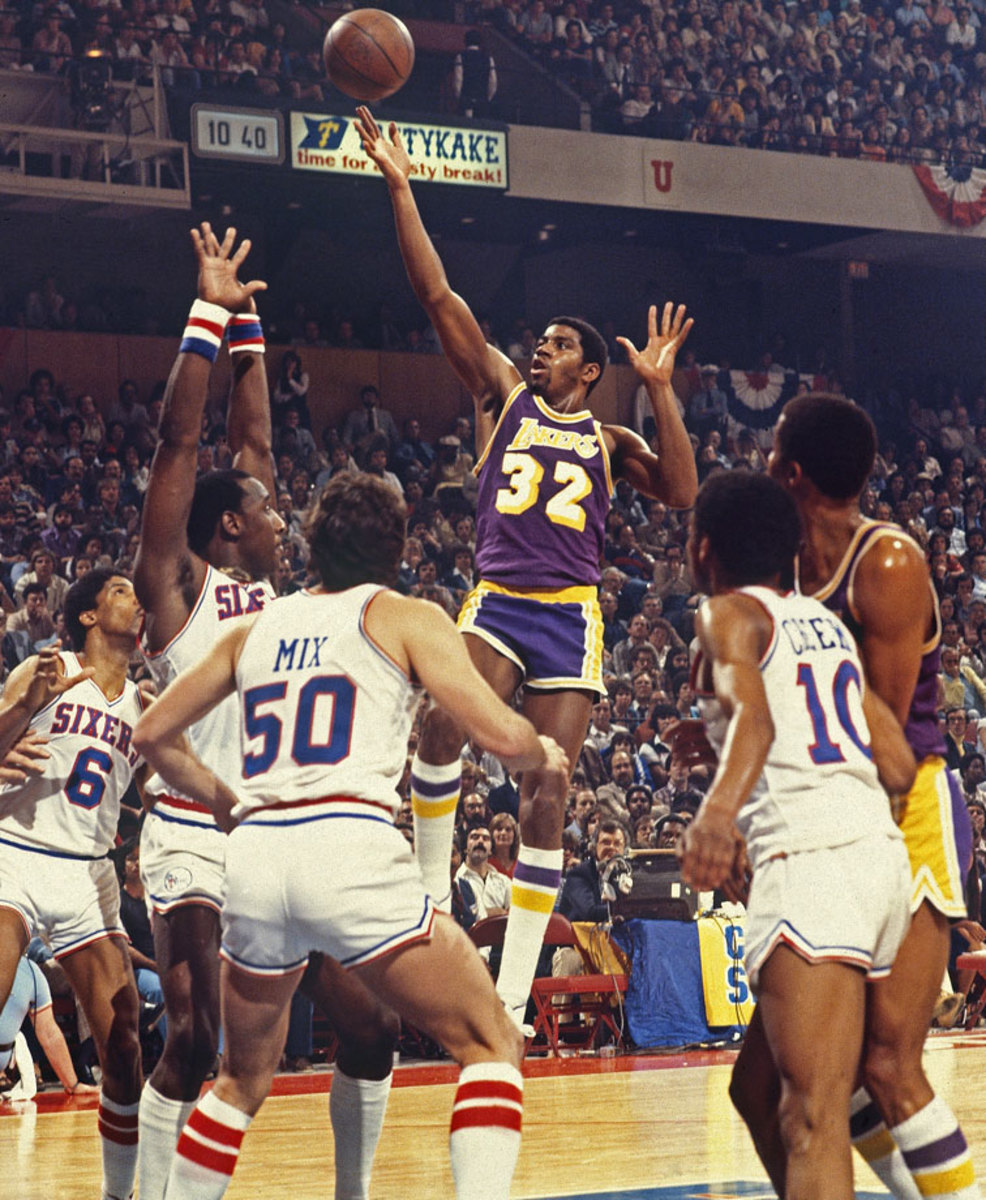
A difficult choice among other top picks — including Kareem Abdul-Jabbar, Shaquille O'Neal and Tim Duncan (Oscar Robertson was a territorial pick and LeBron James had a lot more time to improve his body of work and win titles) — but Magic not only won five championships but also rescued the NBA through his West-East rivalry with Larry Bird. He recast the league as an entertainment company led by likable stars. Would the NBA ever have become so popular without him?
No. 2: Bill Russell, St. Louis Hawks (1956)
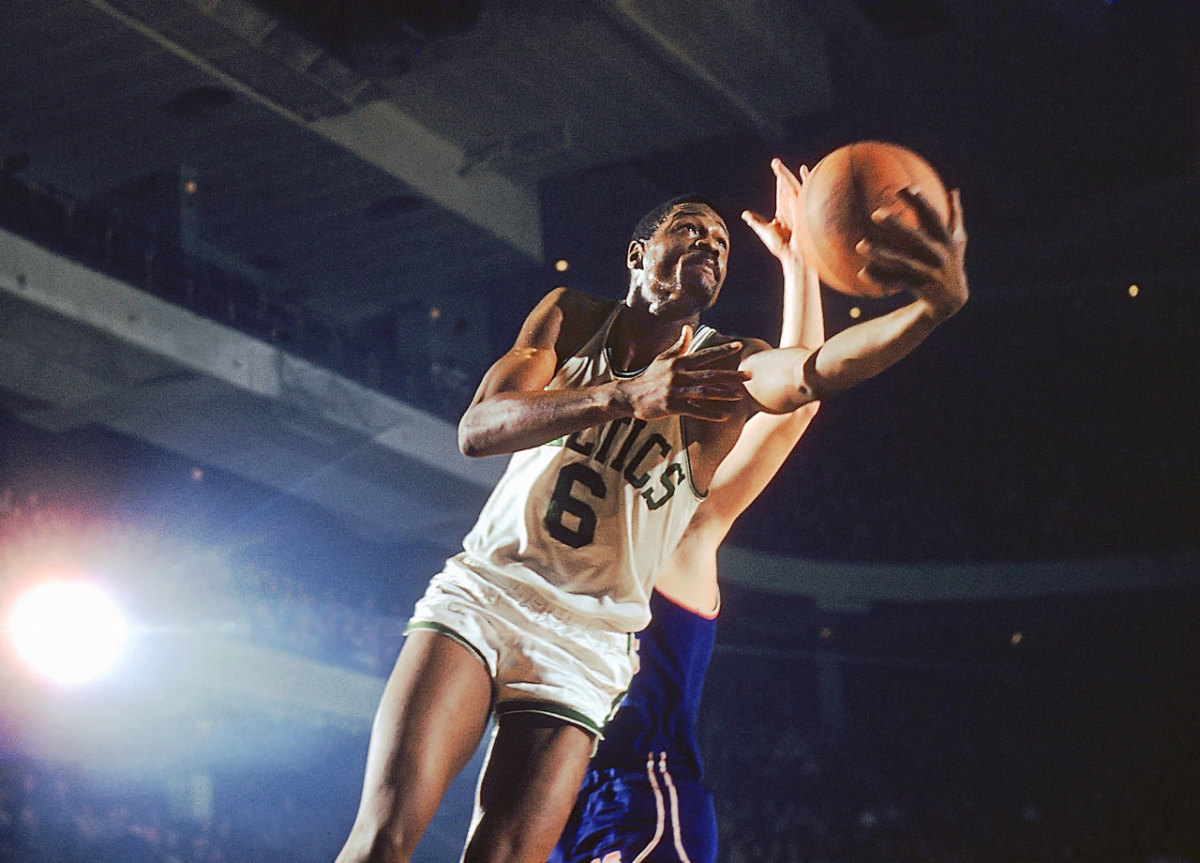
In my book, Russell is the most important draft pick in league history because he instituted the team-first leadership skills that defined success in the NBA and were emulated by Michael Jordan and many other stars thereafter. Because of this pick — acquired by Red Auerbach in a bold trade that sent All-Stars Ed Macauley and Cliff Hagan to the St. Louis Hawks — the Celtics became the most dominant team in sports history, winning 11 of 13 championships around Russell's unprecedented defensive dominance.
No. 3: Michael Jordan, Chicago Bulls (1984)
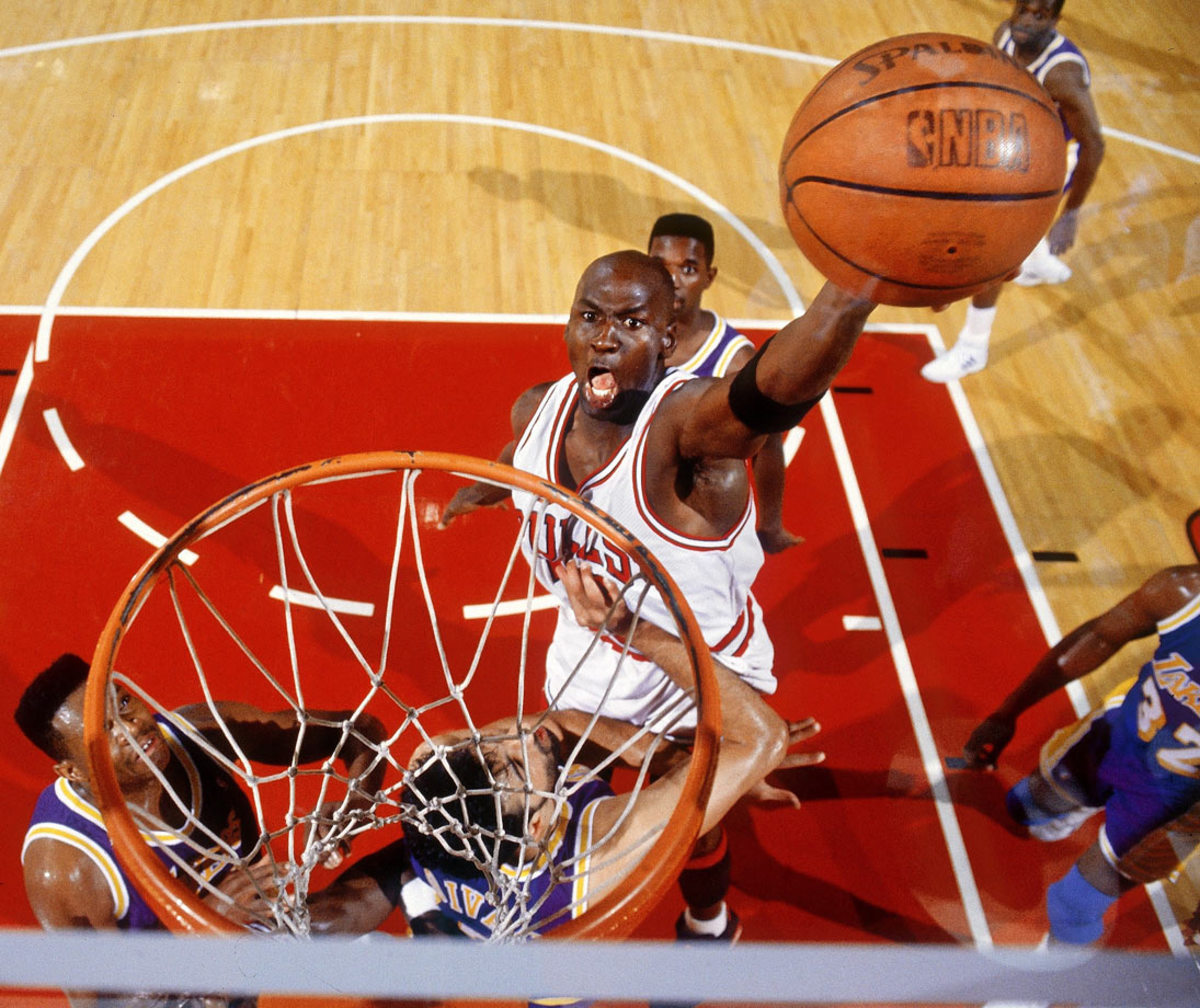
It continues to defy reason that the Trail Blazers passed on Jordan to take center Sam Bowie with the No. 2 pick. (The Rockets used the No. 1 pick on Hakeem Olajuwon, an acceptable decision as he would deliver two championships to Houston.) Jordan became the greatest player of the modern era, and the only basketball player ever to be acknowledged as the most popular athlete in the world.
No. 4: Dave Cowens, Boston Celtics (1970)
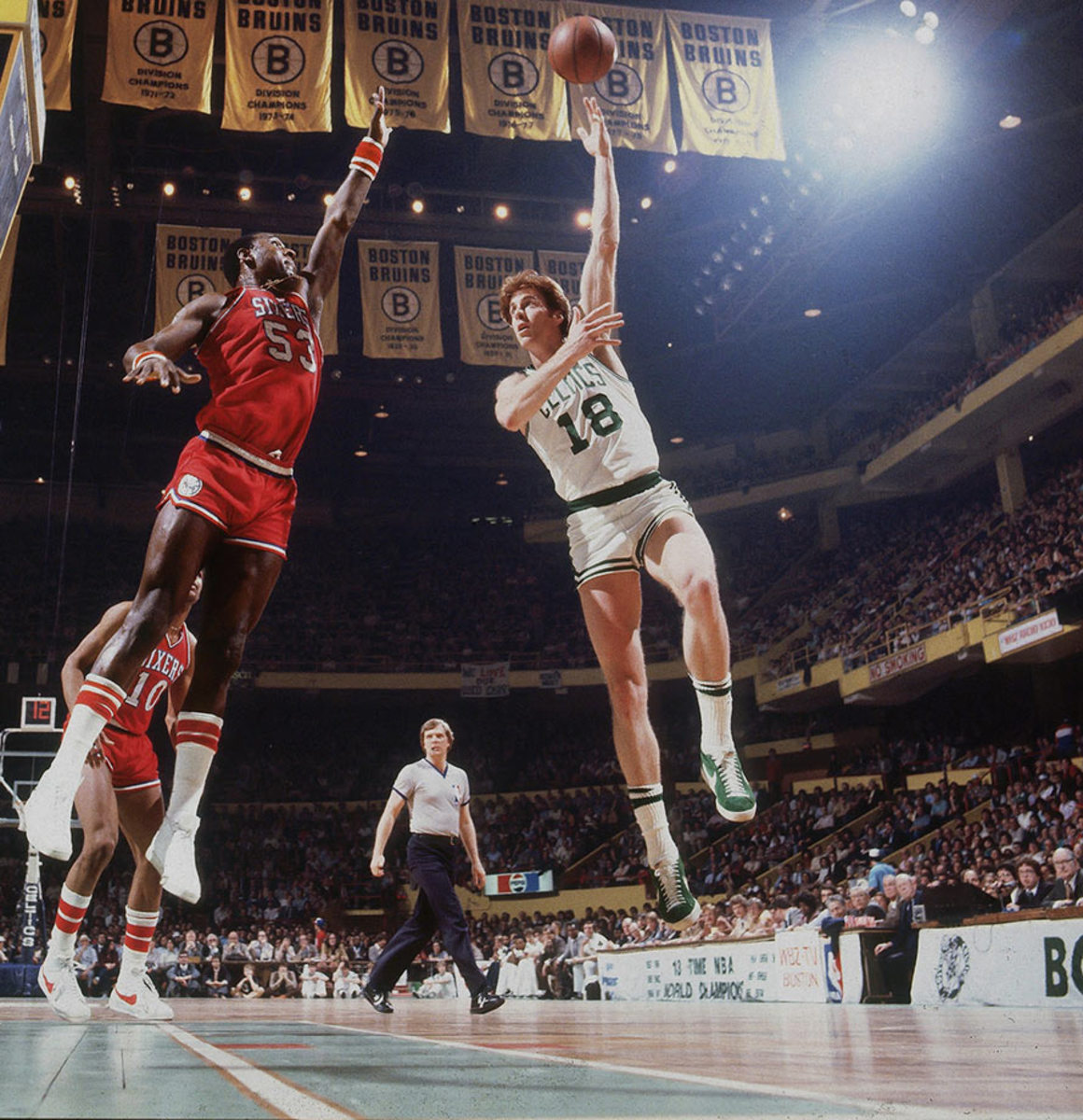
The 6-foot-9 Hall of Famer was an undersized center who won all of the meaningful awards (co-Rookie of the Year, MVP, All-NBA and All-Defensive first team) as well as leading Boston to two championships as Russell's unlikely successor.
No. 5: Kevin Garnett, Minnesota Timberwolves (1995)
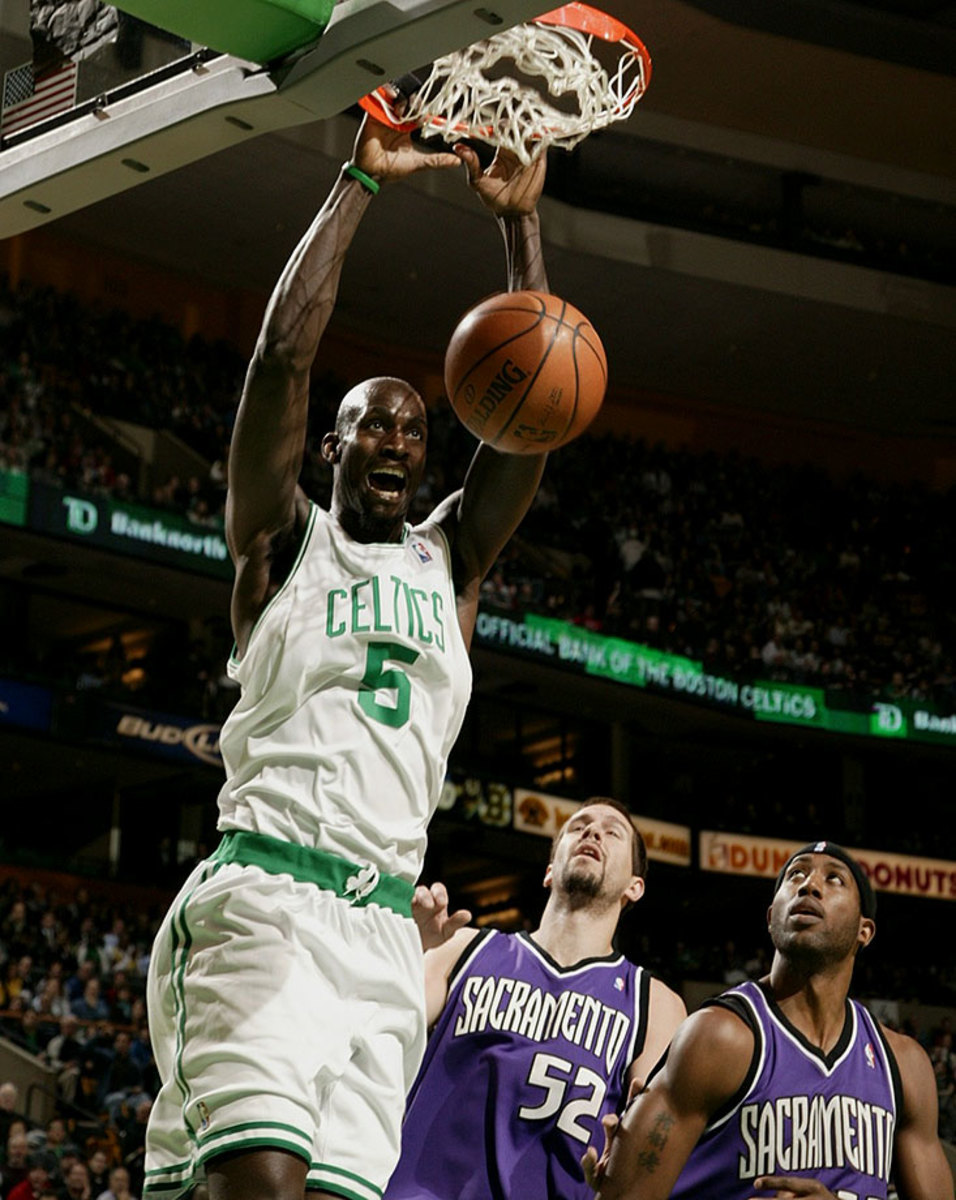
Minnesota took an enormous risk in picking Garnett so high — players without college experience being unproven products in '95 — and he turned into one of the most influential big men of his era. Scottie Pippen, Dwyane Wade, Walt Frazier, Charles Barkley and Ray Allen were also No. 5 picks, but Garnett's dominance in virtually all phases of the game sets the standard here.
No. 6: Larry Bird, Boston Celtics (1978)
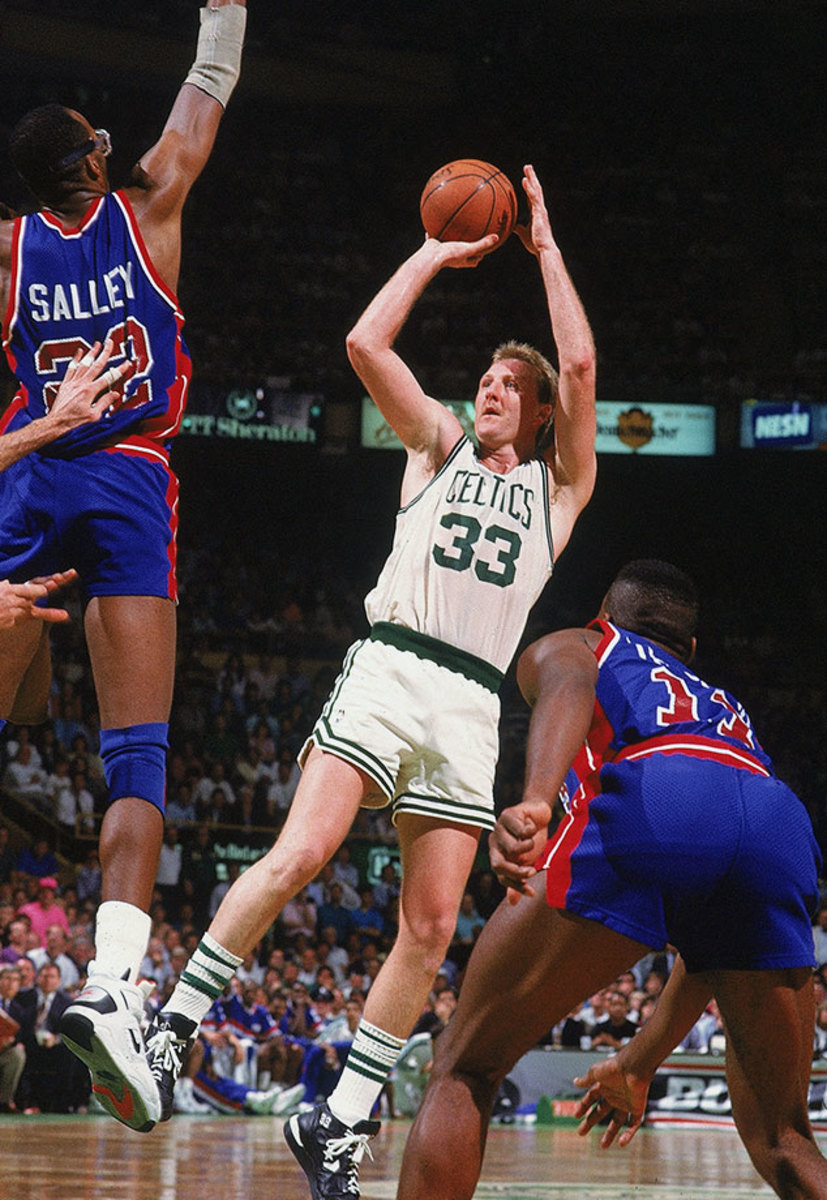
So valuable was Bird that Auerbach drafted him before his final season at Indiana State, exploiting a loophole that has since been closed. When Bird showed up in Boston one year later, he proved that he was worth the wait.
No. 7: John Havlicek, Boston Celtics (1962)
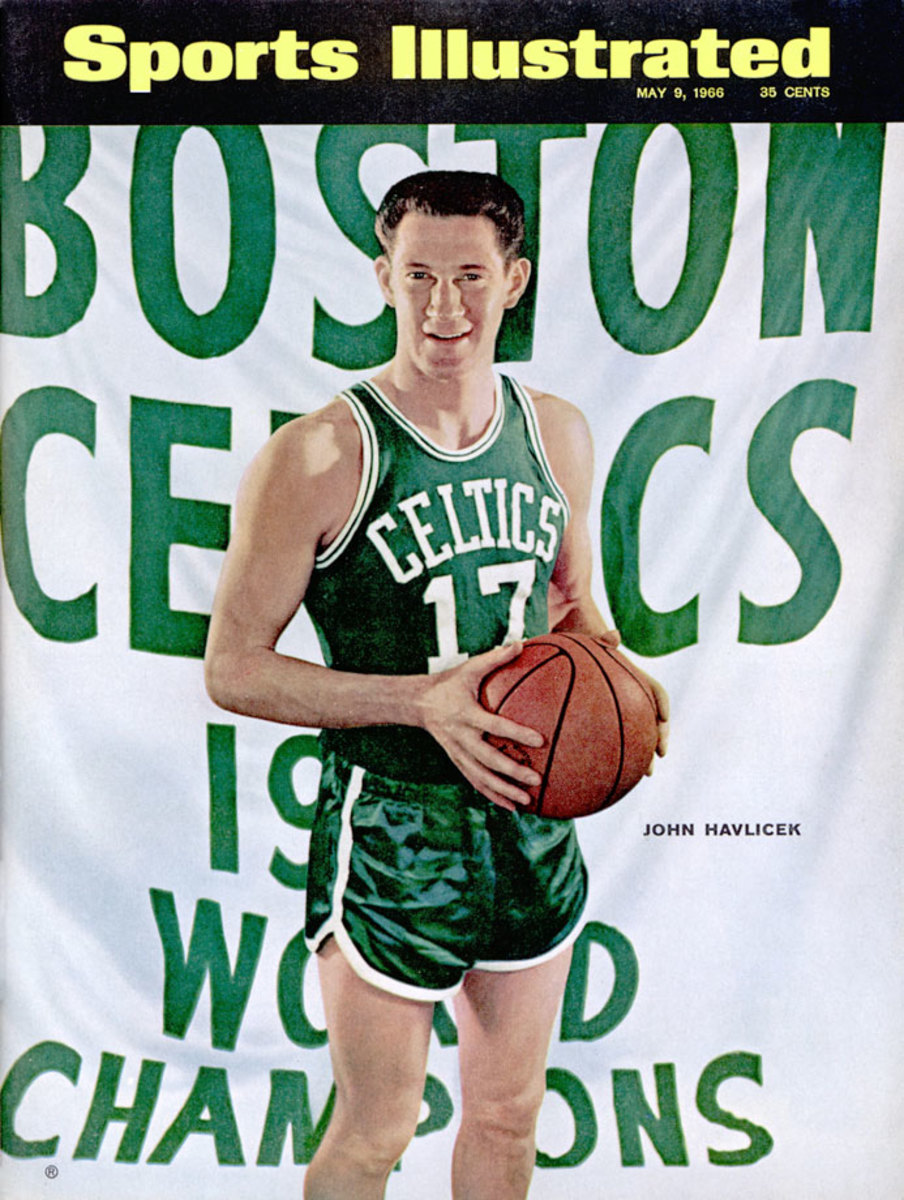
Manu Ginobili is his era's version of Hondo — a versatile, high-energy swingman so selfless that he doesn't care whether he starts or comes off the bench. Havlicek retired in 1978 with eight championships and he remains the leading scorer in Celtics history.
No. 8: Sam Jones, Boston Celtics (1957)
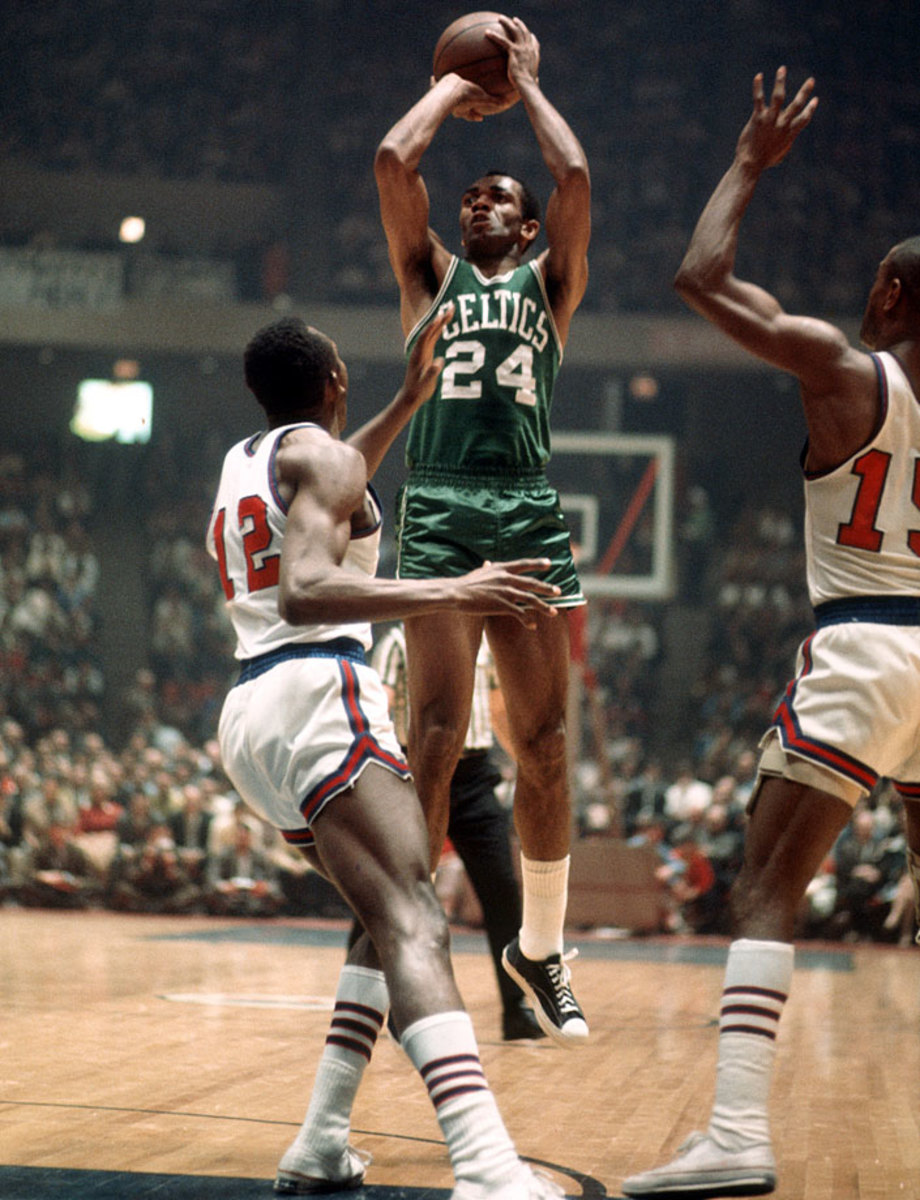
Originally chosen by the Minneapolis Lakers a year earlier, the 6-4 Jones reentered the draft after military service and became the Celtics' version of Mr. Clutch, hitting huge playoff shots in a 12-year career that included 10 NBA championships. 19 years after Jones' selection, the Warriors turned the No. 8 pick into Robert Parish, who also helped deliver championships to Boston.
No. 9: Dirk Nowitzki, Milwaukee Bucks (1998)
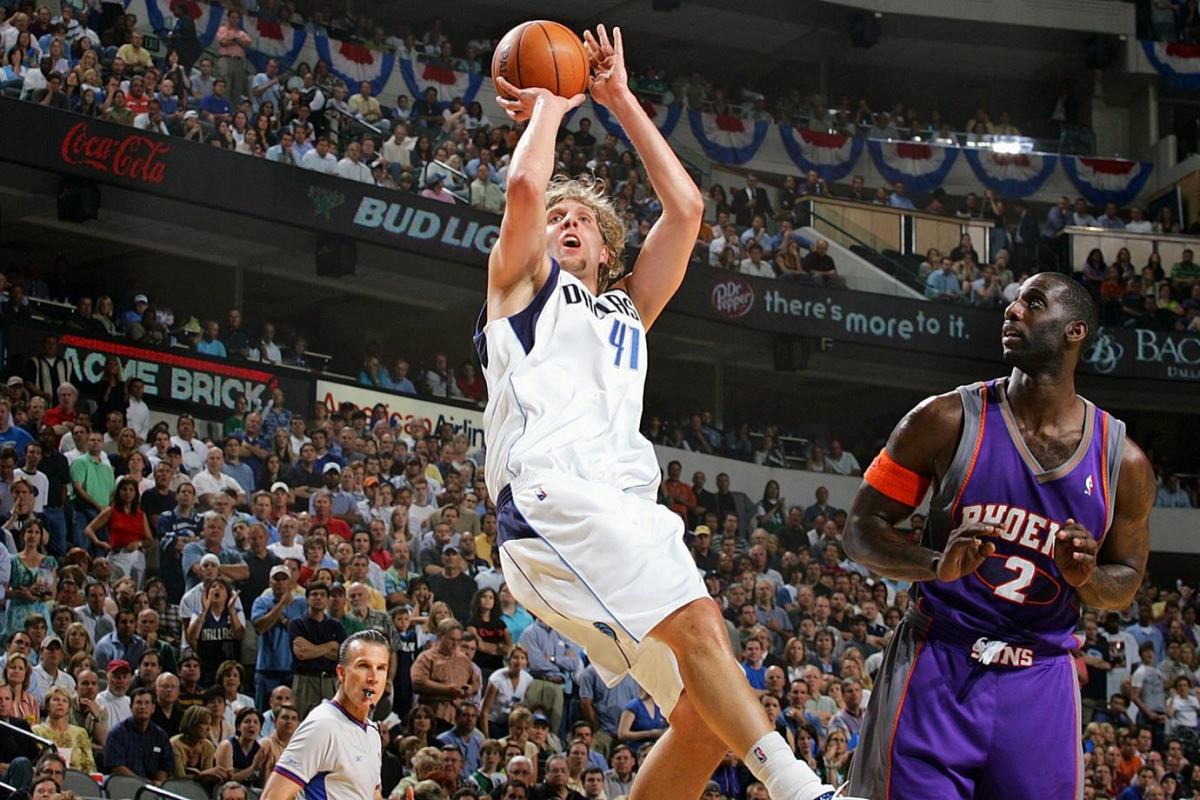
In a prearranged draft-night trade that turned into one of the most lopsided deals in history, the Mavericks sent No. 6 pick Robert Traylor to the Bucks for Nowitzki and rookie Pat Garrity, whom Dallas dealt to Phoenix for Steve Nash. Nowitzki's three-point shooting as a 7-footer transformed the NBA's view of the power forward position. He led the Mavericks to the 2006 NBA Finals and was named league MVP a year later.
No. 10: Paul Pierce, Boston Celtics (1998)
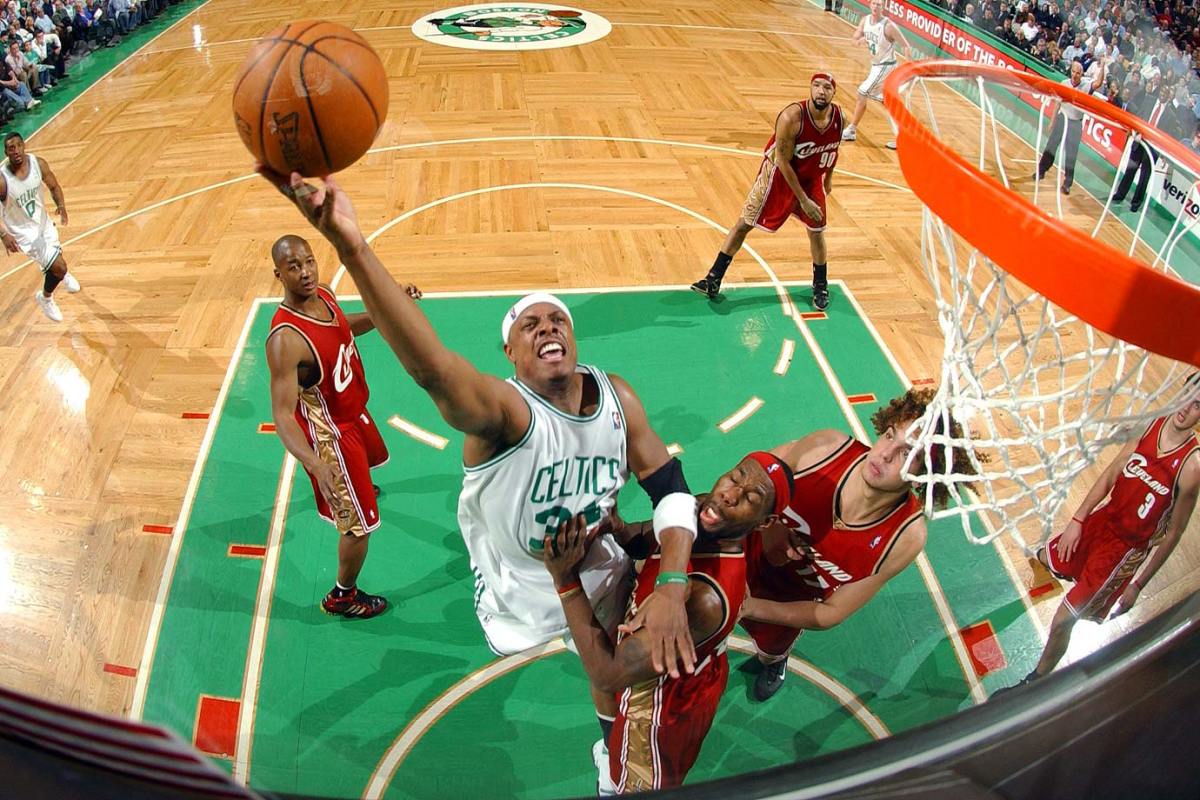
Viewed as a potential top-three pick, Pierce slid to No. 10. He was on the verge of requesting a trade when the Celtics acquired Kevin Garnett and Ray Allen to help Pierce win the 2008 championship. He is Boston's No. 2 all-time scorer, between Havlicek and Bird.
No. 11: Reggie Miller, Indiana Pacers (1987)
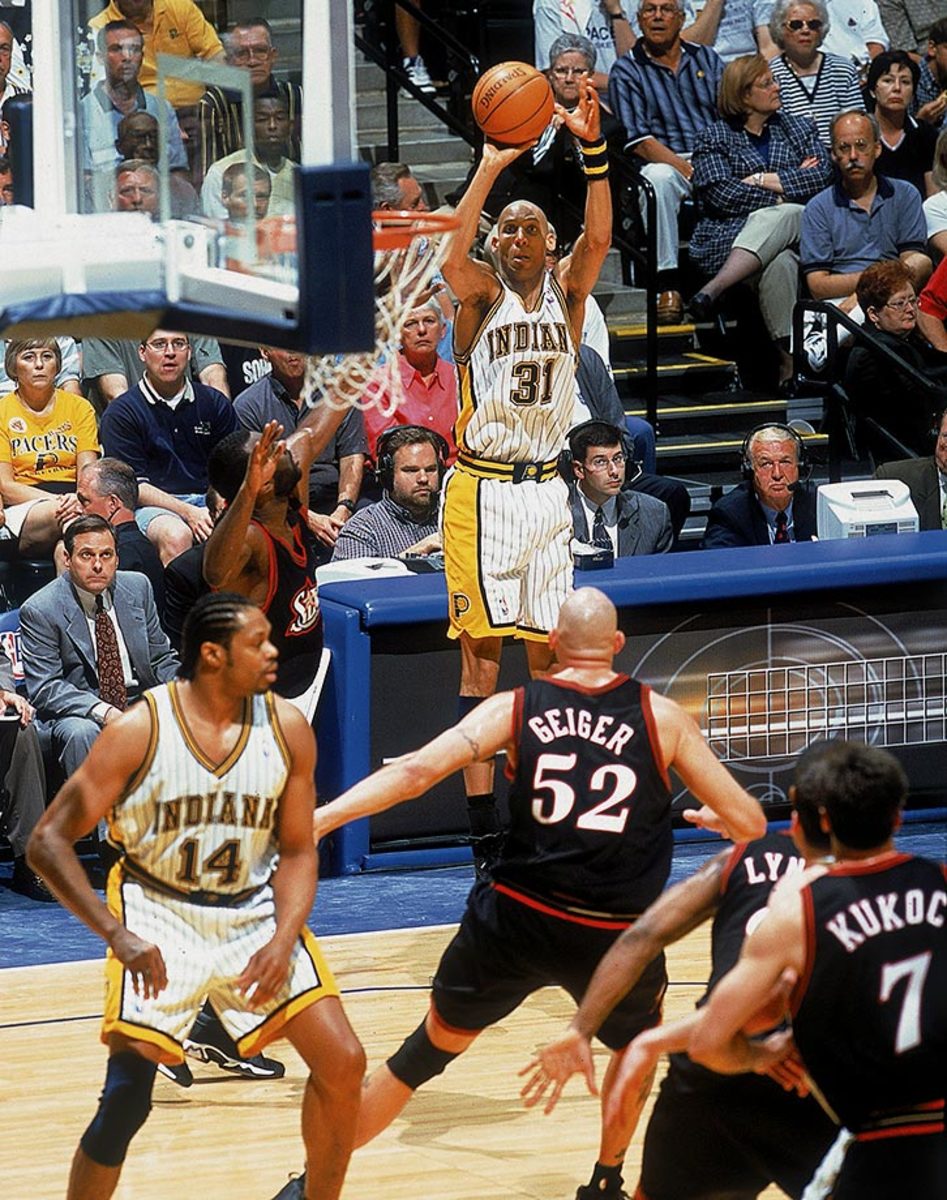
This has been a good slot in which to acquire shooting: Allan Houston, Robert Horry and Kiki Vandeweghe were all No. 11 picks, as was Jamaal Wilkes. But none made a bigger impact on the team that drafted him than Miller, a clutch scorer who matured to set a standard of leadership for the Pacers.
No. 12: Julius Erving, Milwaukee Bucks (1972)
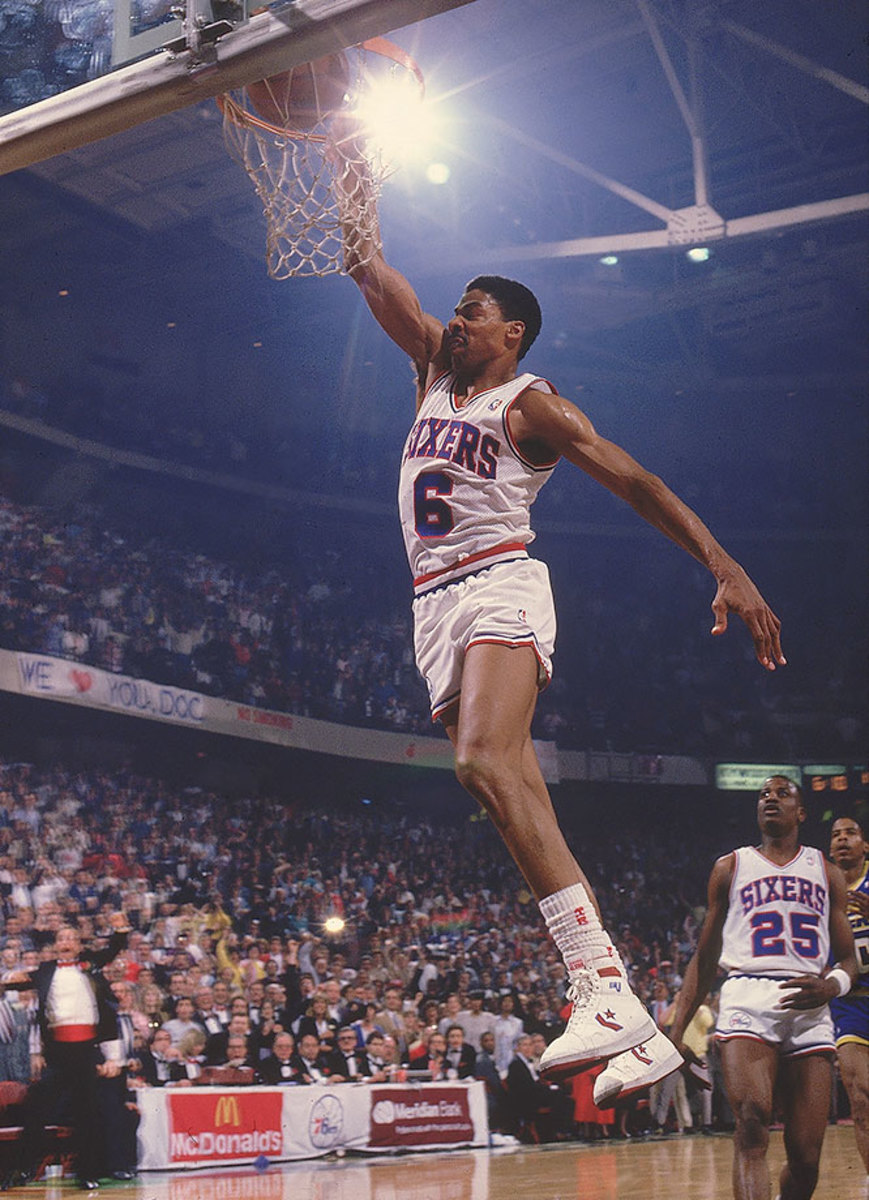
Had Erving signed with Milwaukee, he would have been teammates with Abdul-Jabbar and Robertson; instead, he moved to the ABA, where he won three MVPs and two championships in five seasons before a merger with the NBA shifted him to the 76ers at age 26. More than a creator of highlights, Erving won an MVP award and a championship in 11 years with Philadelphia. But his majestic finishing around the basket set a standard for athletic elegance that remains unmatched.
No. 13: Kobe Bryant, Charlotte Hornets (1996)
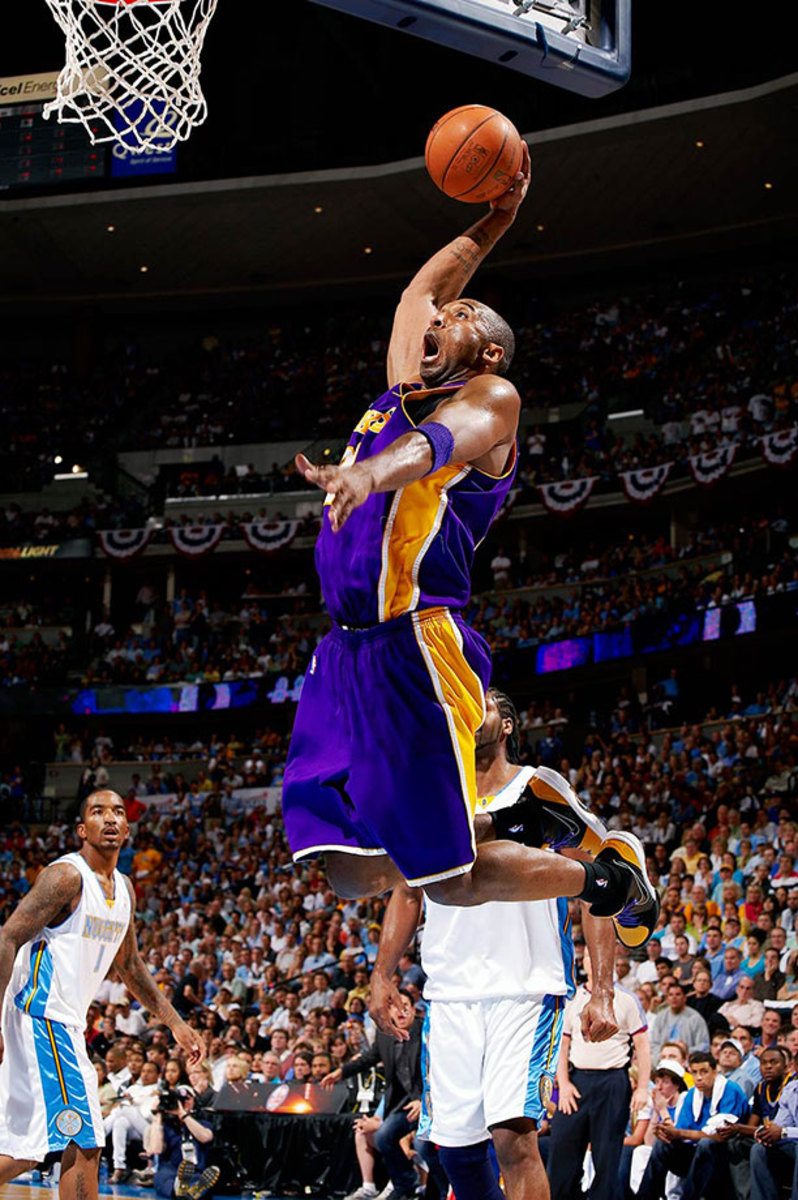
The Hornets took him for the Lakers, who traded Vlade Divac to Charlotte in a cap-clearing move that enabled them to sign Shaq that summer. Consider this to be a lucky place to find talent: In 1985, the Jazz drafted "undersized'' power forward Karl Malone at No. 13.
No. 14: Clyde Drexler, Portland Trail Blazers (1983)
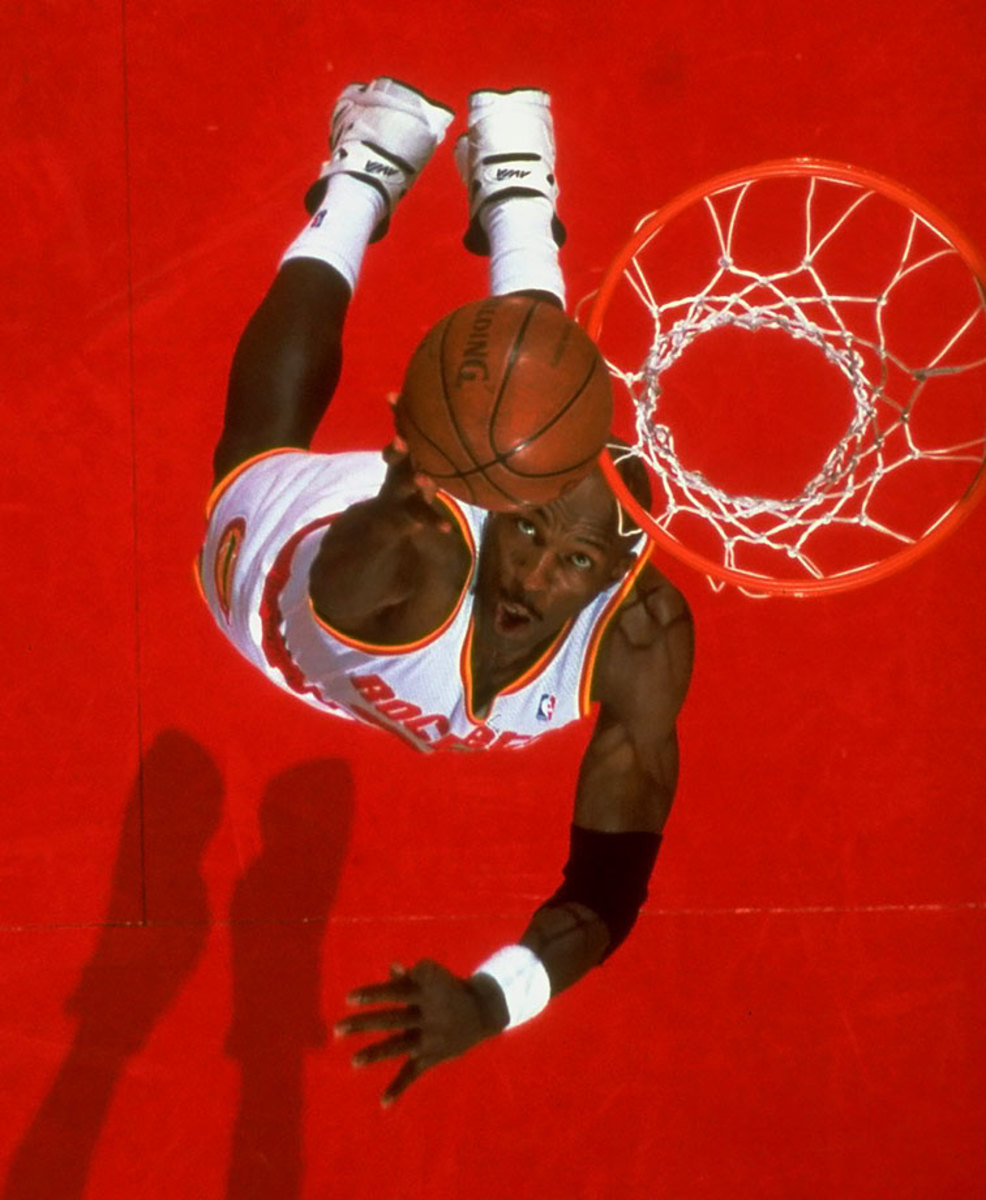
He turned out to be the best player in his draft. He lasted to this spot because his Phi Slamma Jamma years in college created the mistaken impression that he was a one-dimensional dunker, but he turned into a skilled and versatile Hall of Fame scorer who helped his former University of Houston teammate Olajuwon win a championship with the Rockets in 1995.
No. 15: Steve Nash, Phoenix Suns (1996)
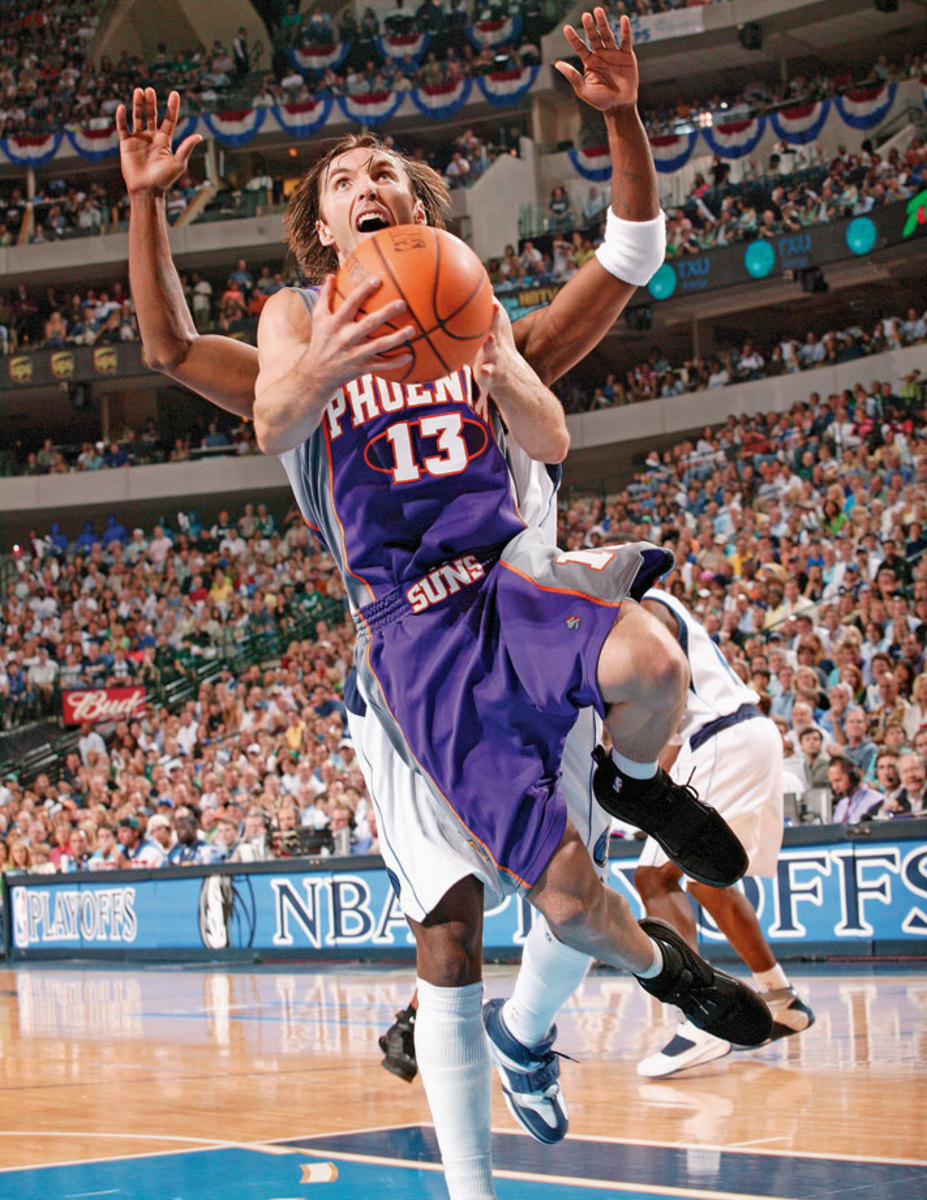
A self-made Canadian point guard with one NCAA scholarship offer (from Santa Clara), Nash began his pro career as the Suns' third-string point guard behind Jason Kidd and Kevin Johnson. Phoenix traded him in 1998 to Dallas, where he overcame a rough start to emerge as a star in his fifth NBA season. He then further surprised the Mavericks by blooming into a two-time league MVP after returning to the Suns as a free agent.
No. 16: John Stockton, Utah Jazz (1984)
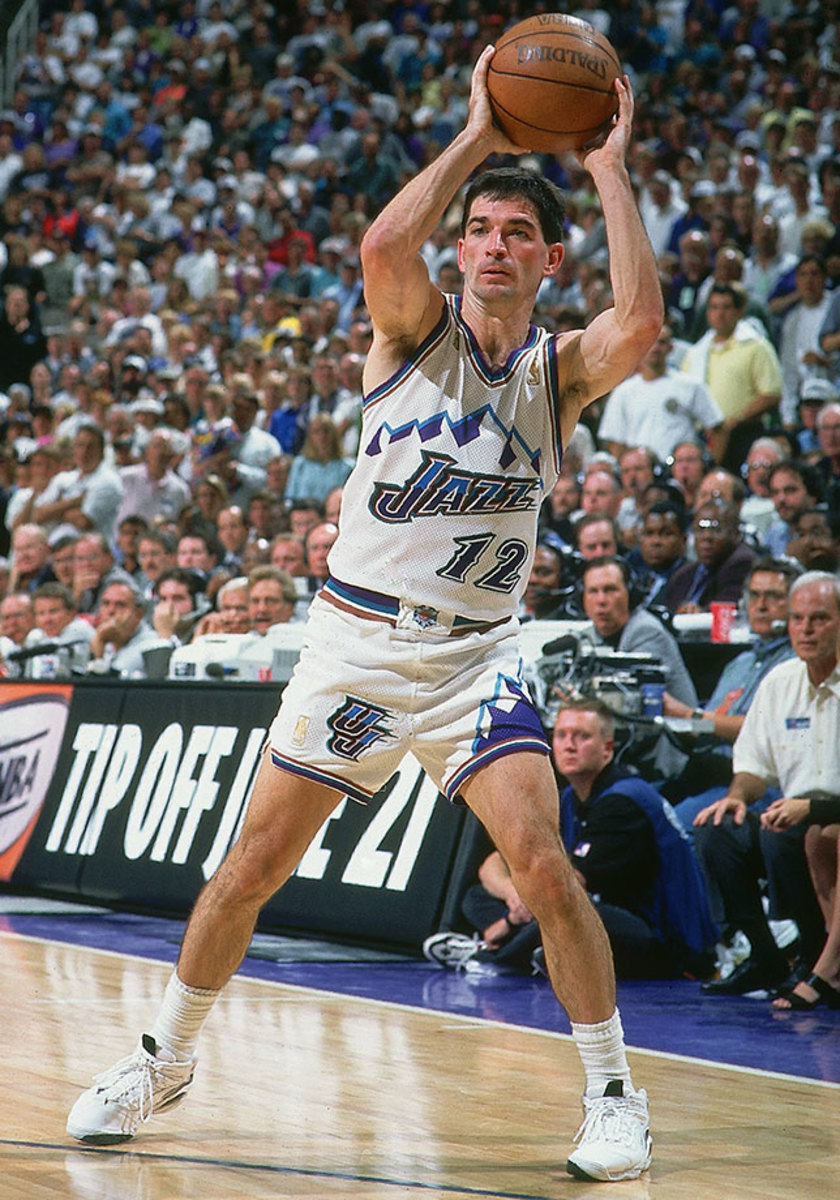
Picking up Stockton at No. 16 is like the 49ers discovering Joe Montana in Round 3 of the NFL draft. Ron Artest has been the next best player from this slot.
No. 17: Shawn Kemp, Seattle SuperSonics (1989)
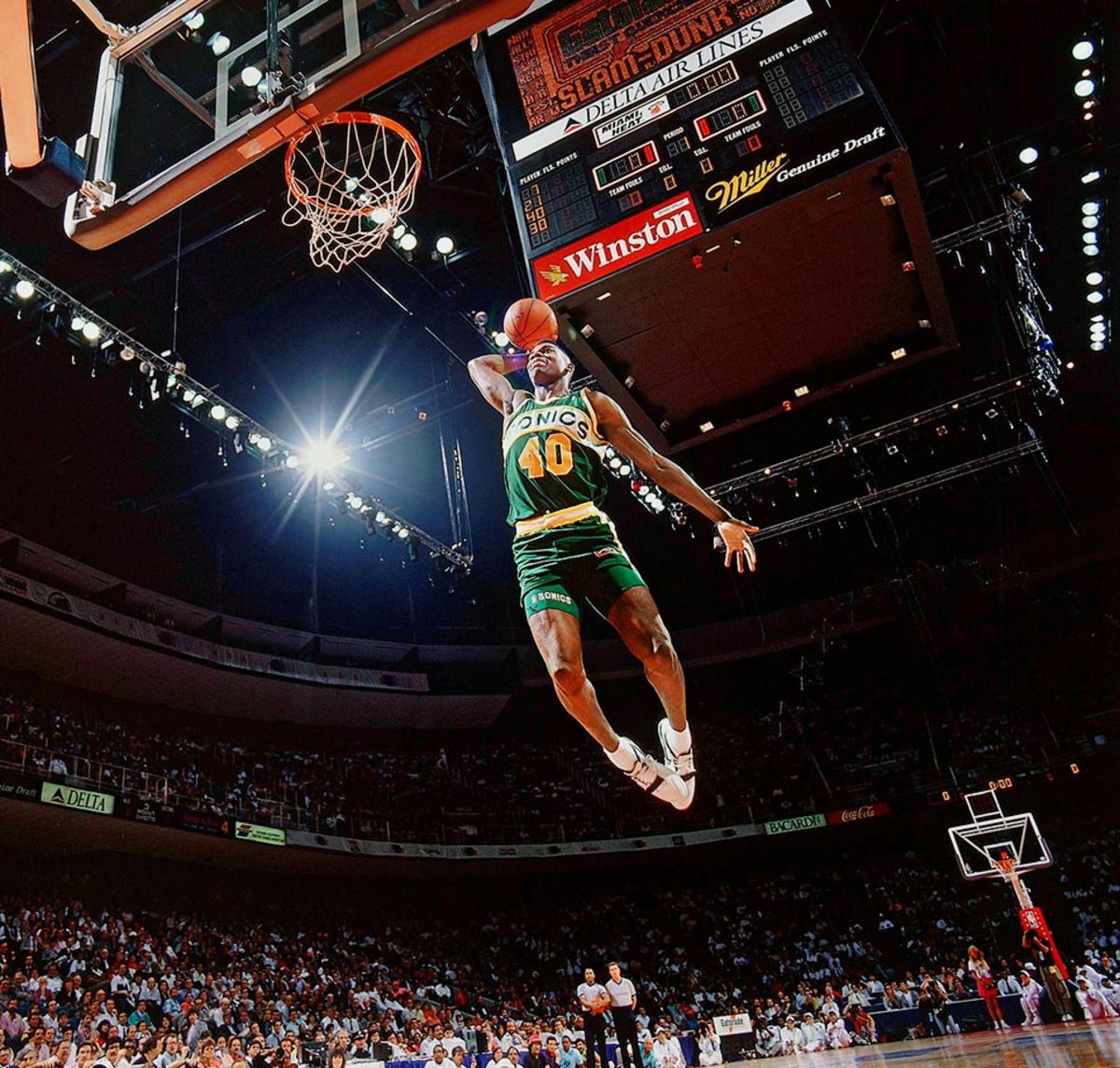
Entering the NBA as the youngest player in the league, the 6-10 Kemp turned into a six-time All-Star who joined with guard Gary Payton to lead Seattle to the 1996 Finals. He averaged 16.8 points and 9.5 rebounds over his 11-year career.
No. 18: Joe Dumars, Detroit Pistons (1985)
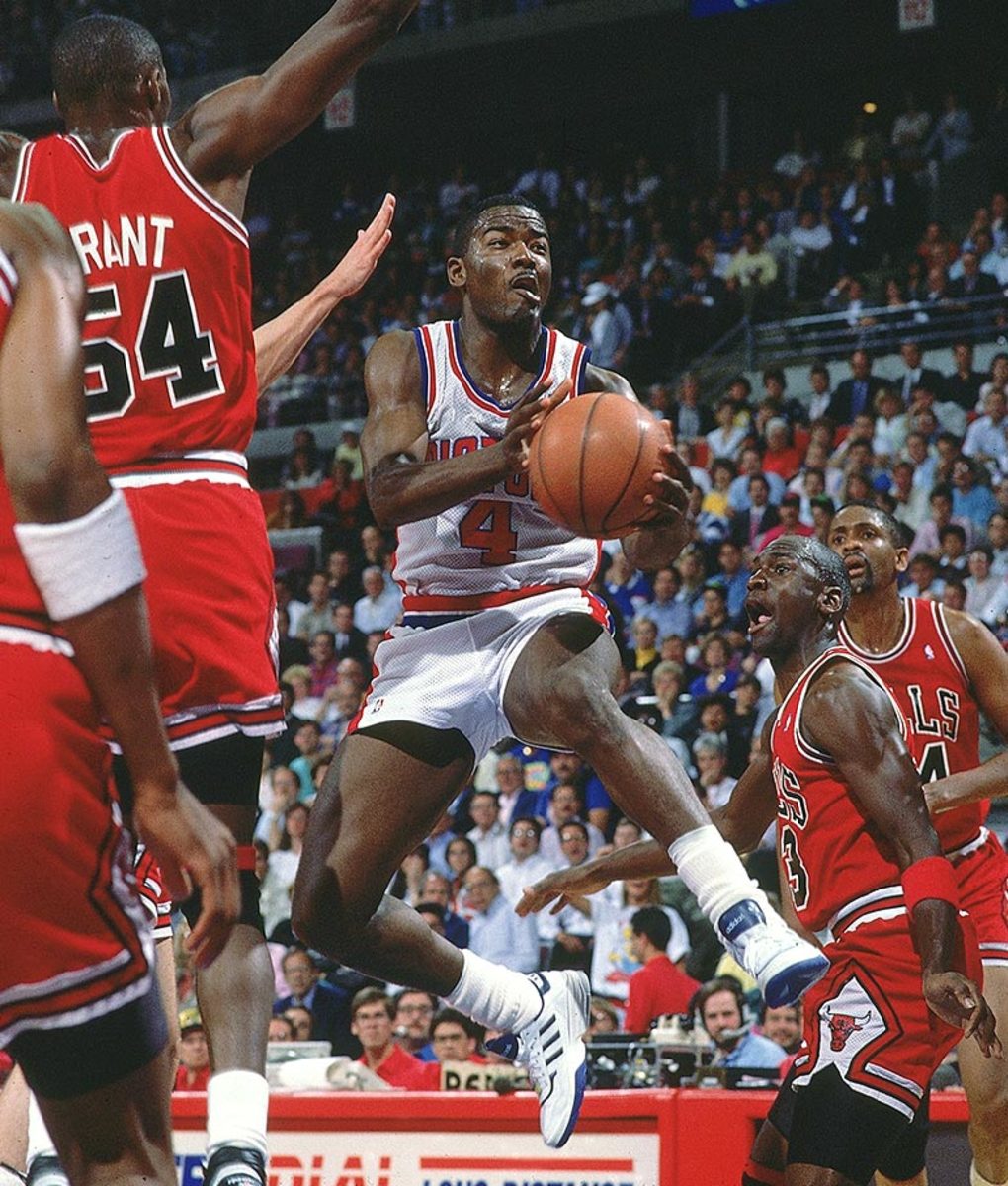
A complement to Isiah Thomas, the Hall of Fame guard helped the Pistons earn two championships (as well as another one two decades later as the team president). Calvin Murphy, Mark Jackson and David West were other surprisingly outstanding picks here.
No. 19: Tiny Archibald, Cincinnati Royals (1970)
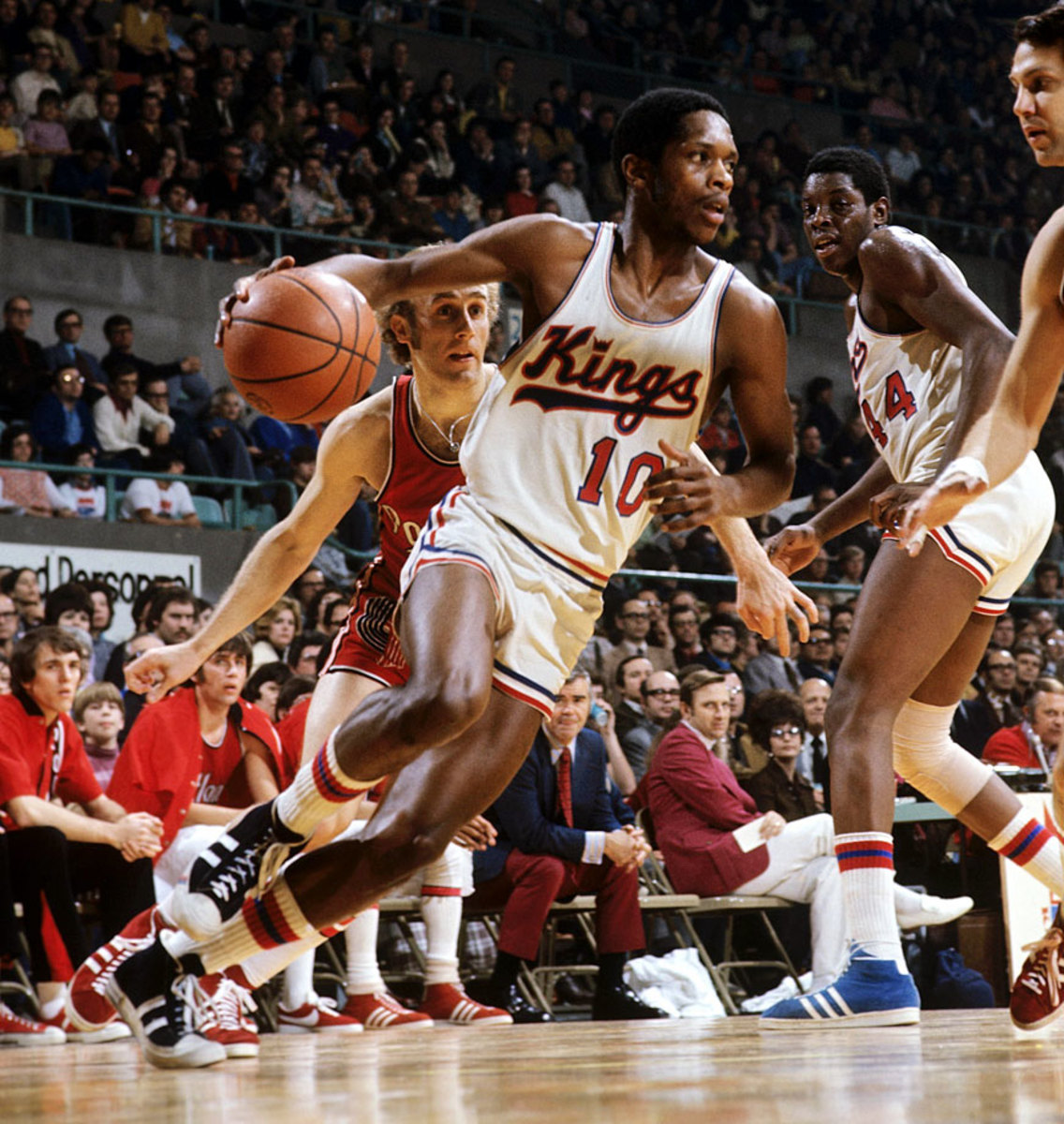
A small guard who could weave his way through any defense, the Hall of Famer led the NBA in scoring (34.0) and assists (11.4) in 1972-73, the only player to win both categories in the same season in league history. Rod Strickland (No. 8 on all-time assists list) and Bulls champion John Paxson also were picked here.
No. 20: Gus Williams, Golden State Warriors (1975)
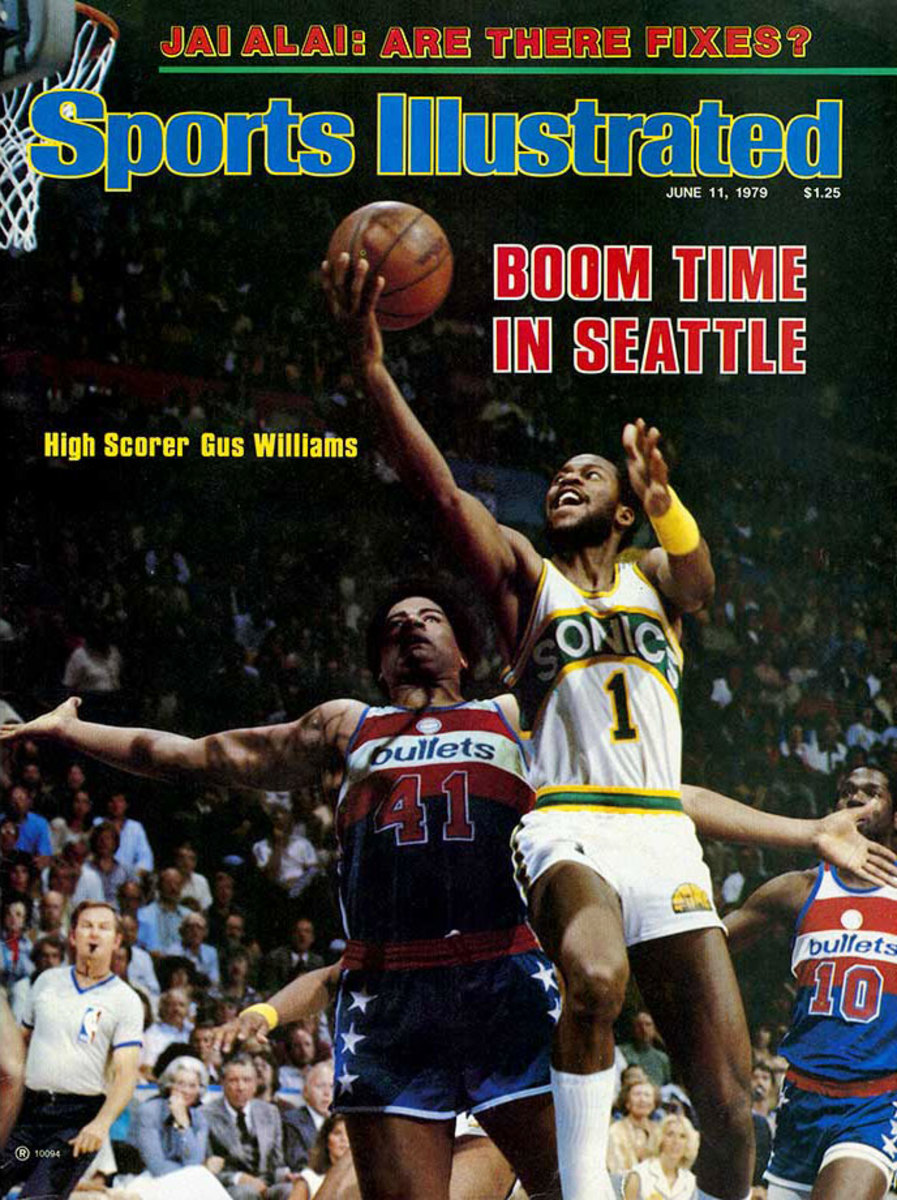
The two-time All-NBA guard averaged 17.1 ppg in 12 seasons, including six defining years with the Sonics, whom he led to the 1979 championship while averaging 28.6 points in the Finals.
No. 21: Michael Finley, Phoenix Suns (1995)
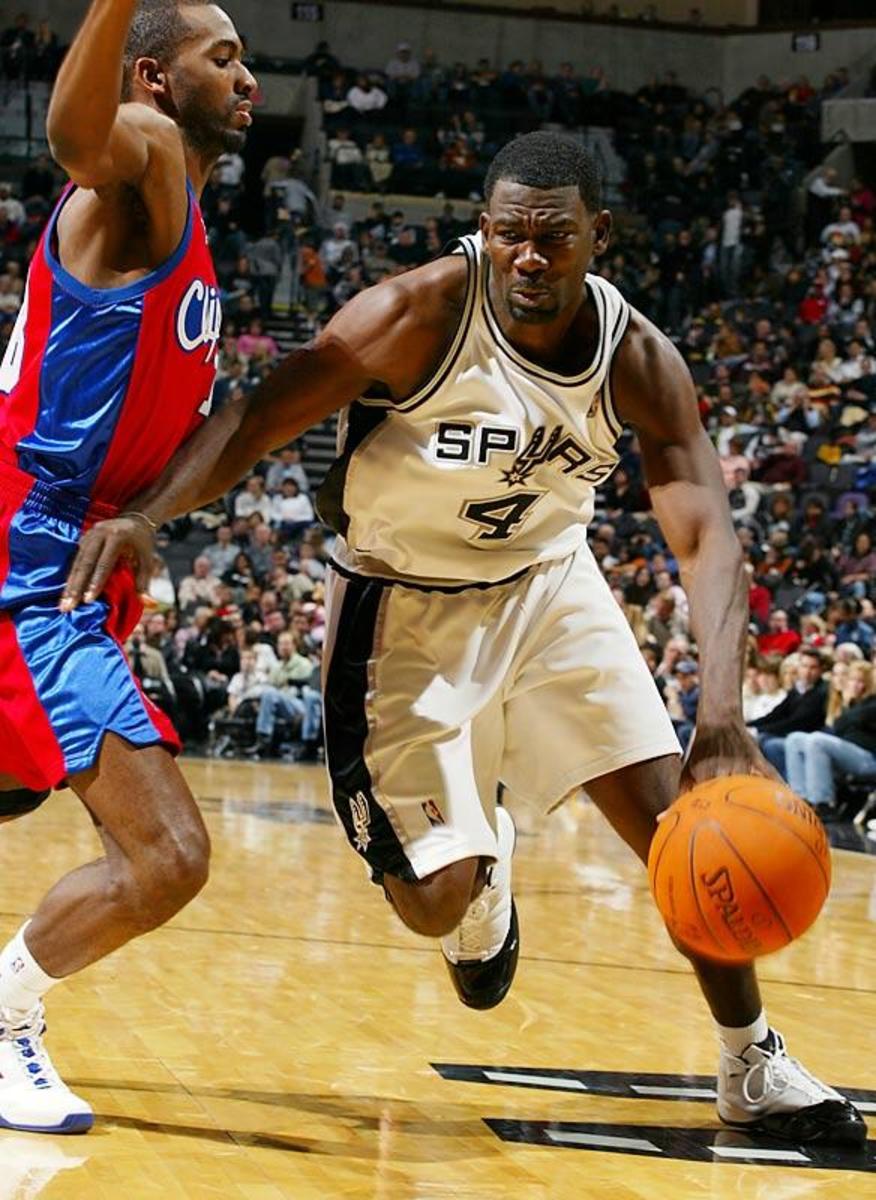
Rajon Rondo, drafted 21st in 2006, may be viewed as the best pick at this spot someday. For now, the choice is Finley, who turned into one of the league's elite scorers after being traded to Dallas, and later became a champion with the Spurs.
No. 22: Reggie Lewis, Boston Celtics (1987)
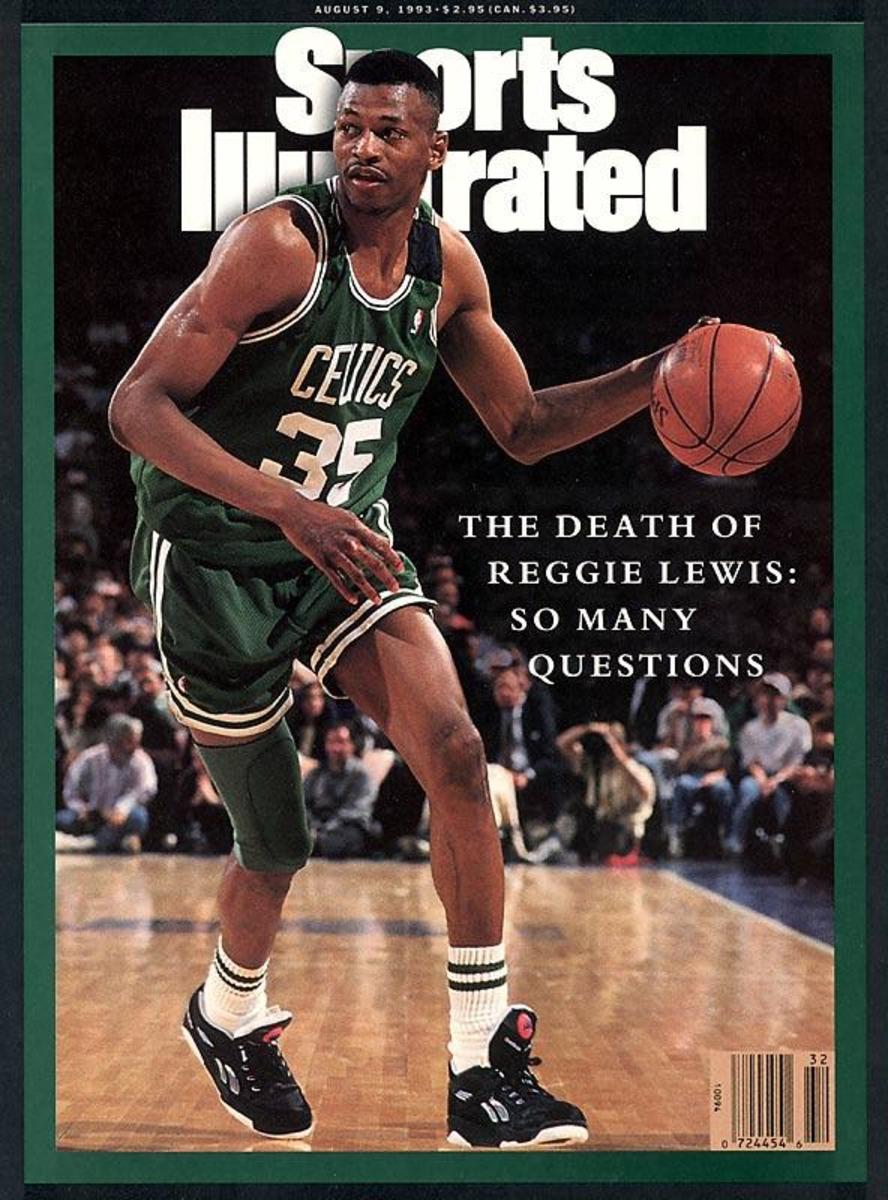
George McGinnis and Norm Nixon were fine choices here as well, but Lewis — a sixth man on his high school team — would have made multiple All-Star teams if not for the heart condition that killed him at age 27.
No. 23: Alex English, Milwaukee Bucks (1976)
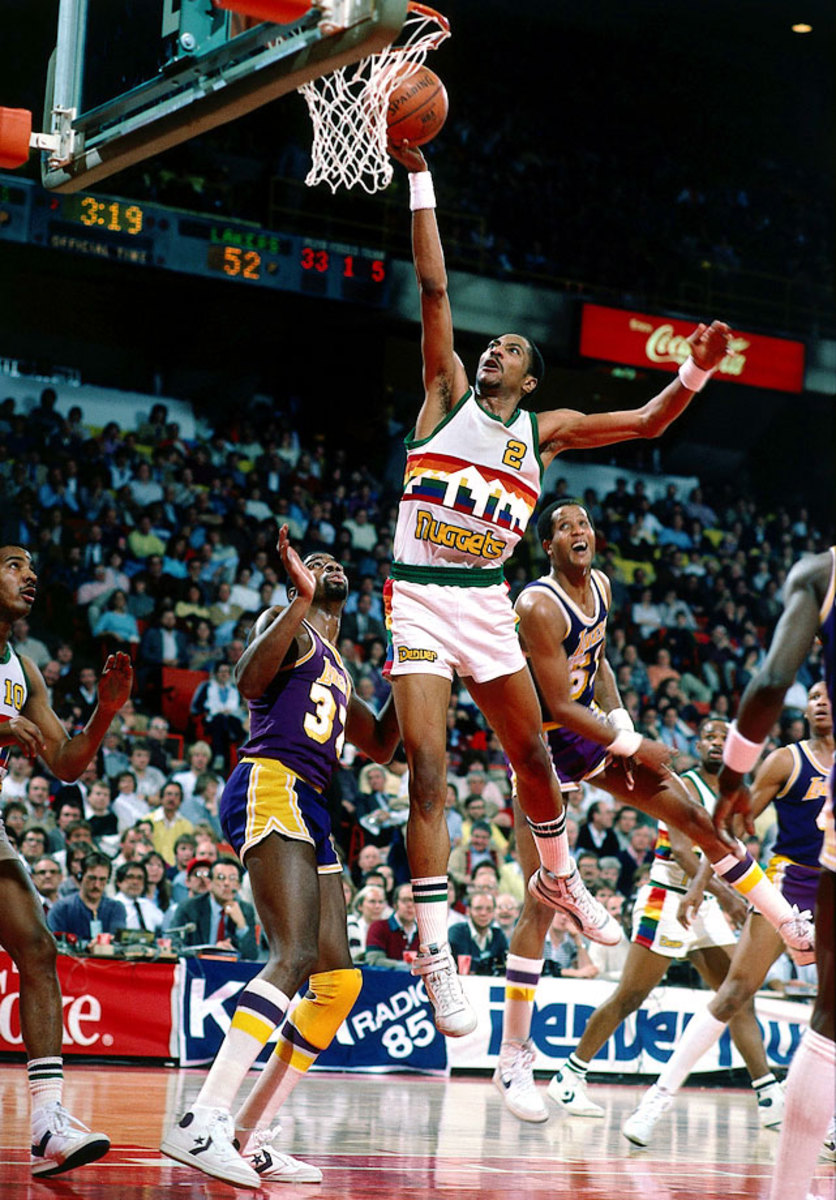
After three-plus middling seasons with Milwaukee and Indiana, the second-round pick (the NBA had fewer teams then) found his niche with the score-first Nuggets. When he retired in 1991, the future Hall of Famer was the NBA's No. 6 all-time scorer.
No. 24: Sam Cassell, Houston Rockets (1993)
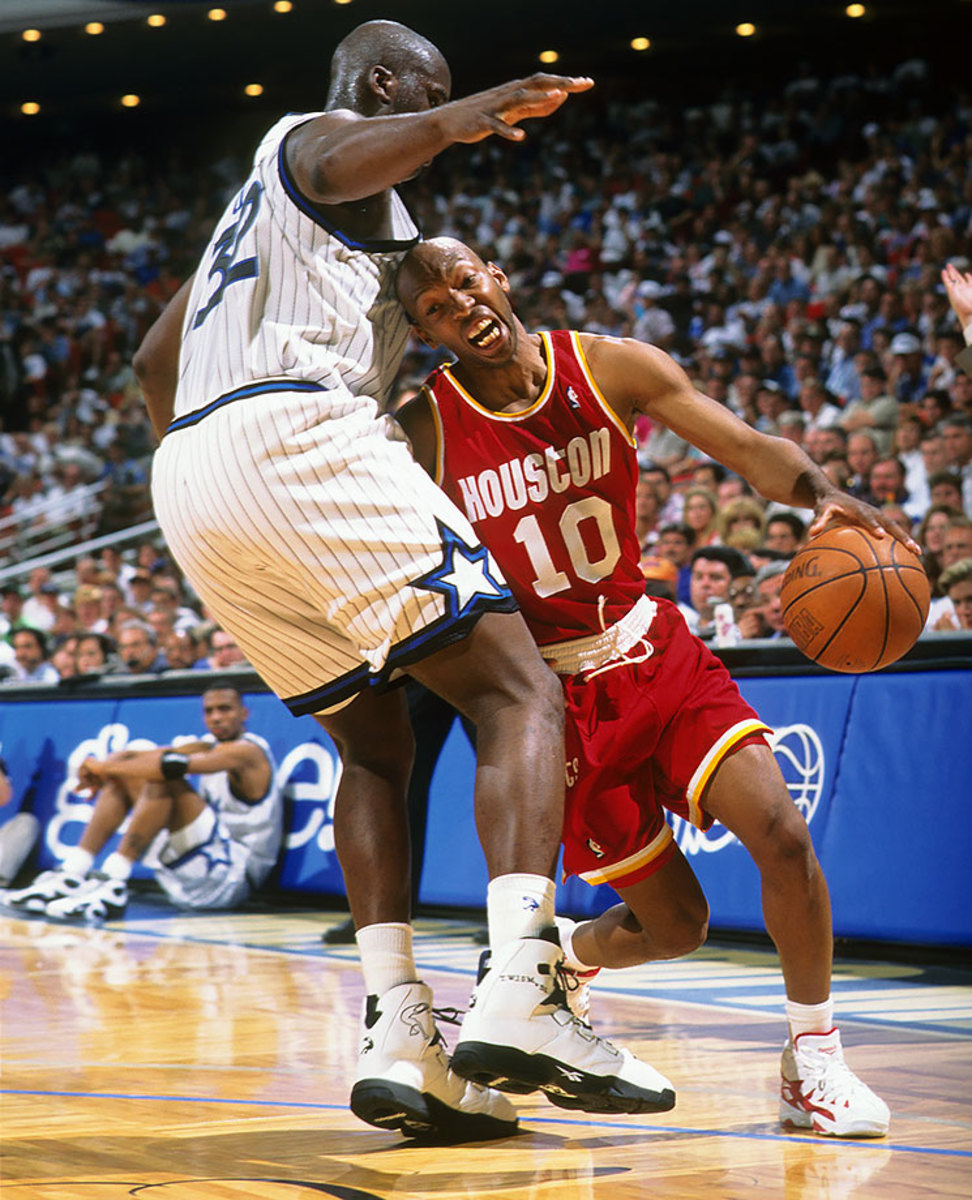
Talk about a steal: As a late-pick rookie, Cassell helped lead the Rockets to their first NBA championship. It was no fluke, as his 16-year career would attest. A lot of long-term value has been unearthed at No. 24, including Arvydas Sabonis, Andrei Kirilenko and Latrell Sprewell, as well as Lakers champions Rick Fox, Brian Shaw and Derek Fisher.
No. 25: Mark Price, Dallas Mavericks (1986)
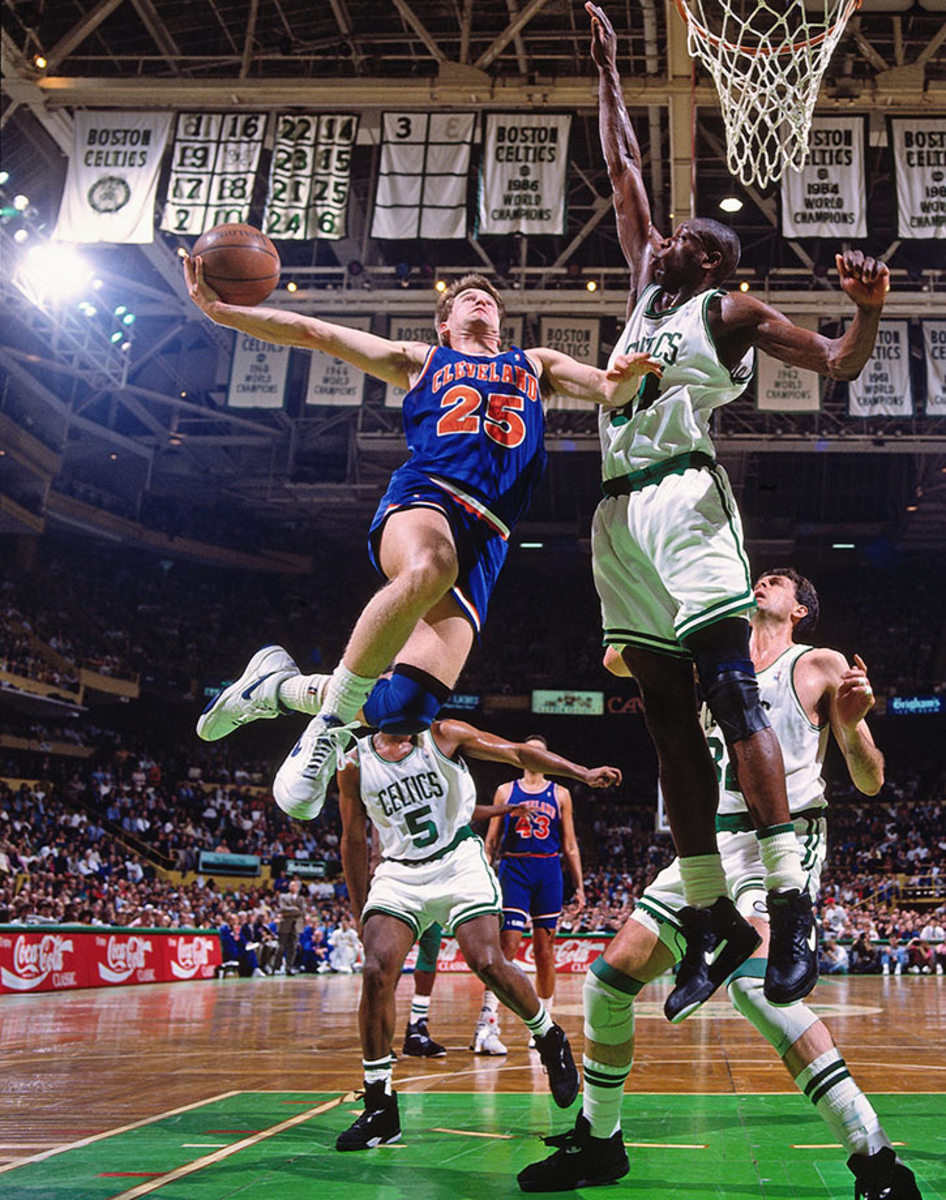
He was the face of the Cavaliers for a decade as well as a surprisingly effective shooter for his size. Price edges out John Drew, Gerald Wallace and Bob Gross, the small forward on Portland's 1977 championship team.
No. 26: Vlade Divac, Los Angeles Lakers (1989)
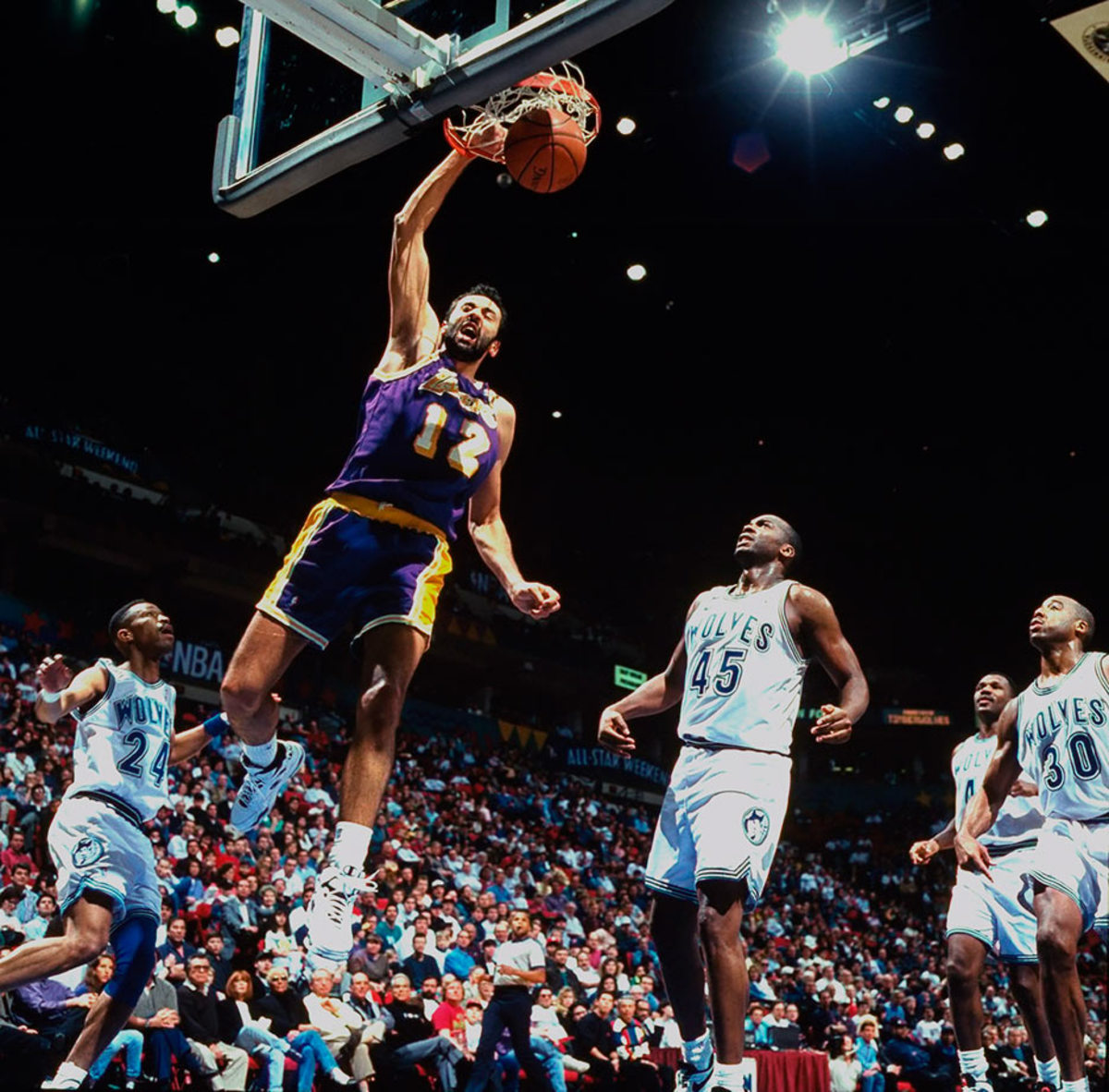
How often do you get a 16-year center this late in the draft? Divac was one of the best passing big men in the modern era.
No. 27: Dennis Rodman, Detroit Pistons (1986)
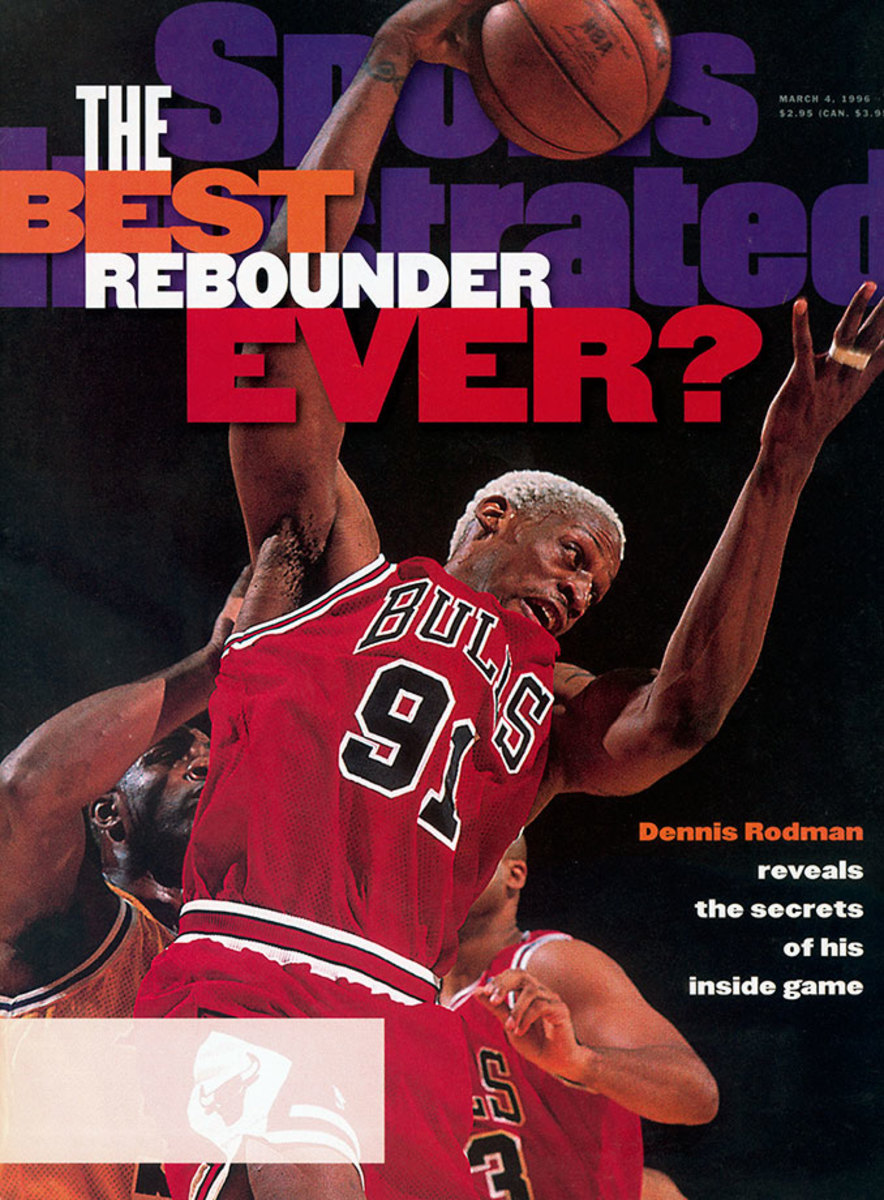
He became so much more than anyone could have predicted — in all kinds of ways. Rodman contributed to five championship teams in Detroit (two) and Chicago (three), exemplifying the kind of high-effort defender and rebounder teams are often seeking with a late pick.
No. 28: Tony Parker, San Antonio Spurs (2001)
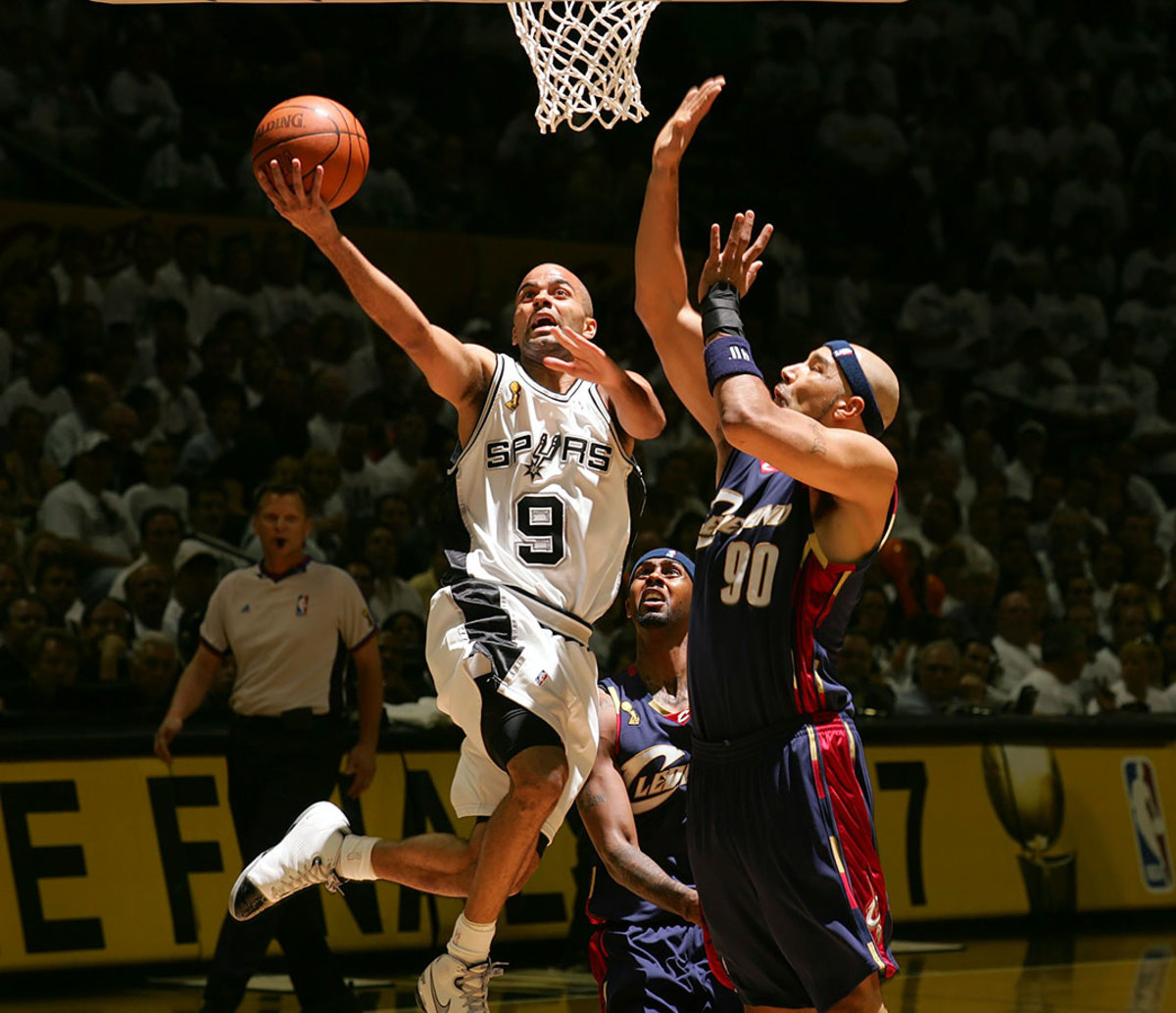
Yes, the Spurs were lucky to win the lottery twice when David Robinson and Tim Duncan were the No. 1 picks. But they also discovered Manu Ginobili at No. 57 and their elite point guard and future NBA Finals MVP at this slot.
No. 29: Dennis Johnson, Seattle SuperSonics (1976)
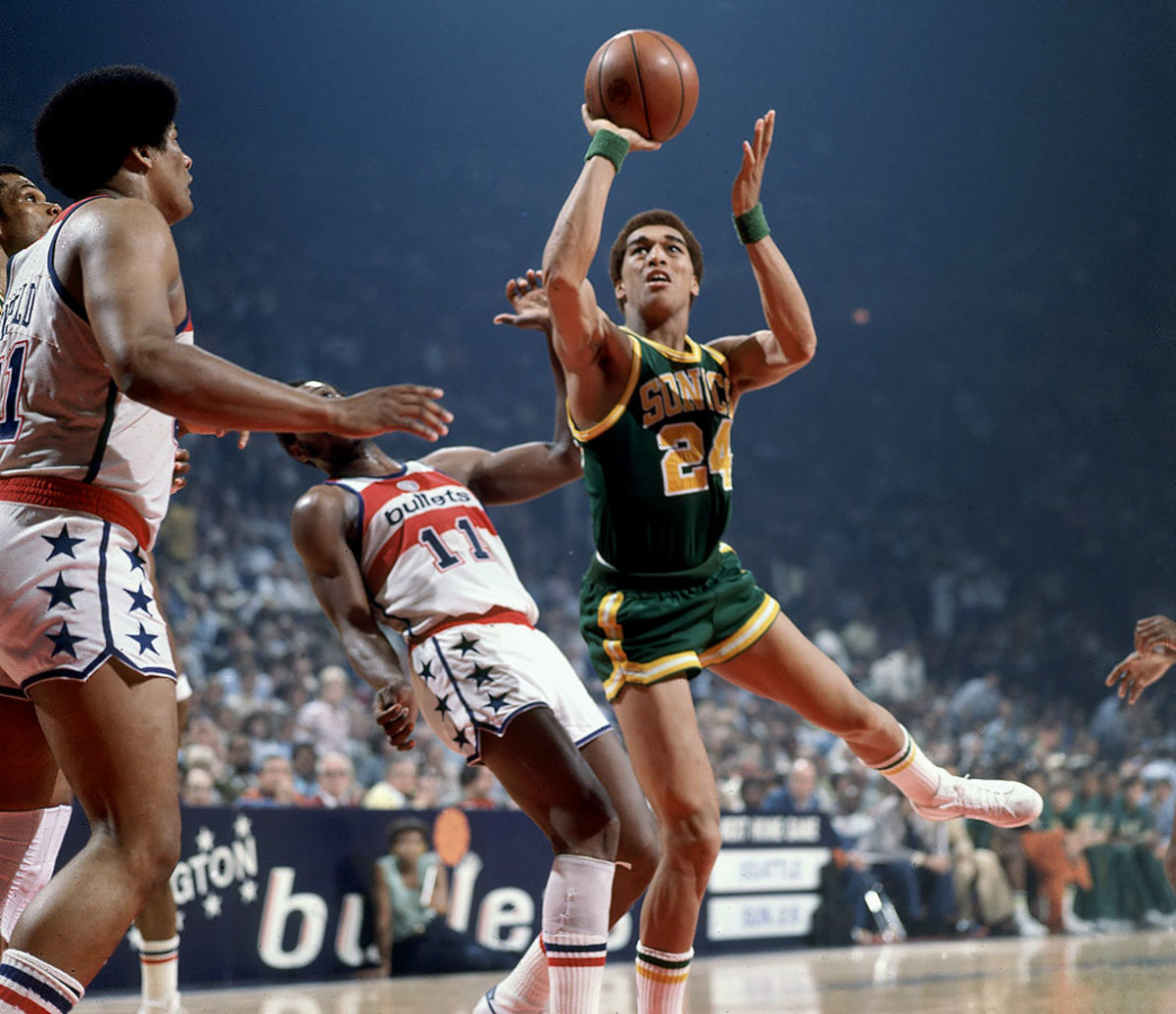
Johnson was never viewed as a great shooter; he nonetheless helped lead Seattle and Boston to three championships combined while playing the kind of defense that posthumously earned him a place in the Hall of Fame.
No. 30: Gilbert Arenas, Golden State Warriors (2001)
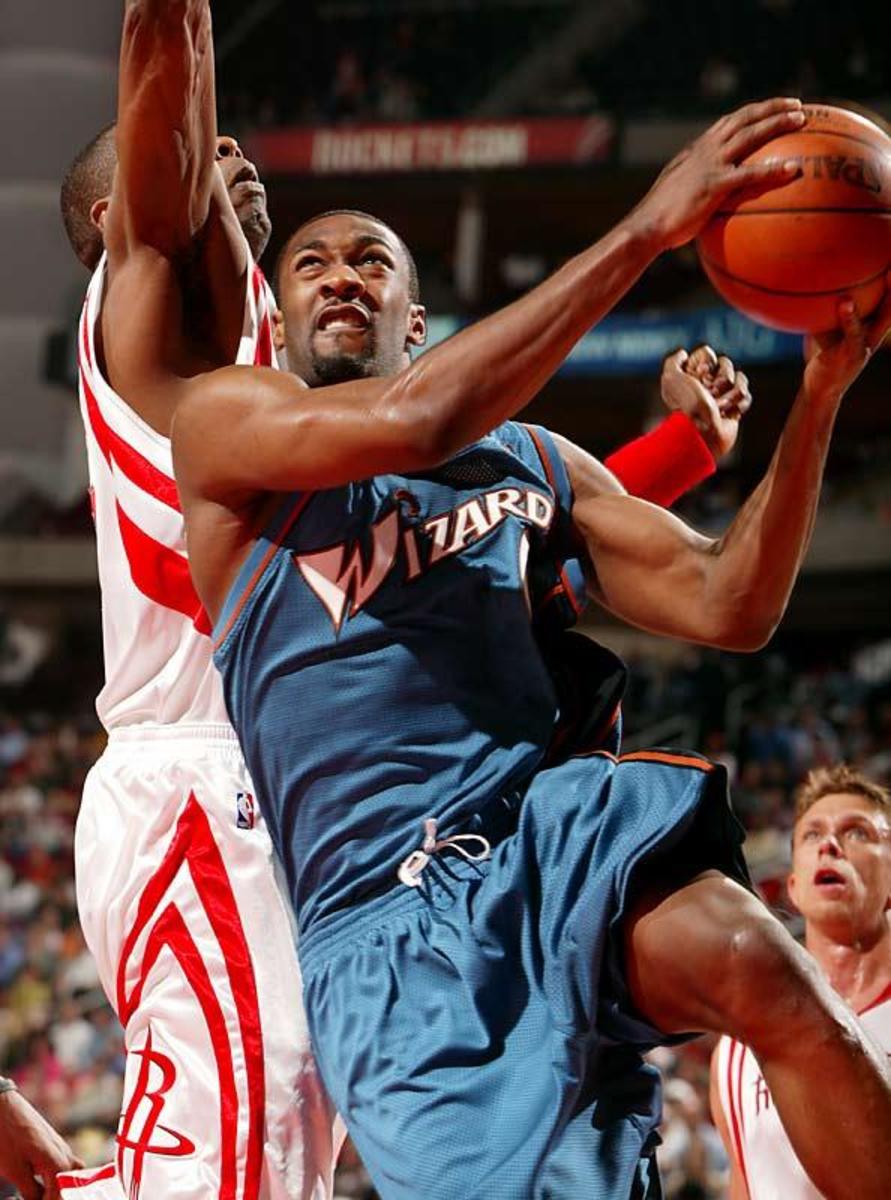
Arenas drew laughs at his introductory Golden State news conference when he predicted he would be a starter in his rookie year. Not only did he prove to be correct in that assessment, but he also turned into an All-NBA point guard with the Wizards.
Which teams will be there?
All told, 23 NBA teams plus a D-League Select team will compete. The NBA teams are Bucks, Bulls, Cavaliers, Celtics, Grizzlies, Hawks, Heat, Jazz, Lakers, Mavericks, Nets, Nuggets, Pelicans, Rockets, Sixers, Suns, Timberwolves, Trail Blazers, Warriors and Wizards.
The seven teams not present—the Clippers, Hornets, Knicks Magic, Pacers, Pistons, and Thunder—all competed in this week's scaled-down Orlando Summer League. Additionally, the Celtics, Sixers, Spurs and Jazz competed in the abbreviated Utah Summer League that ran this week.
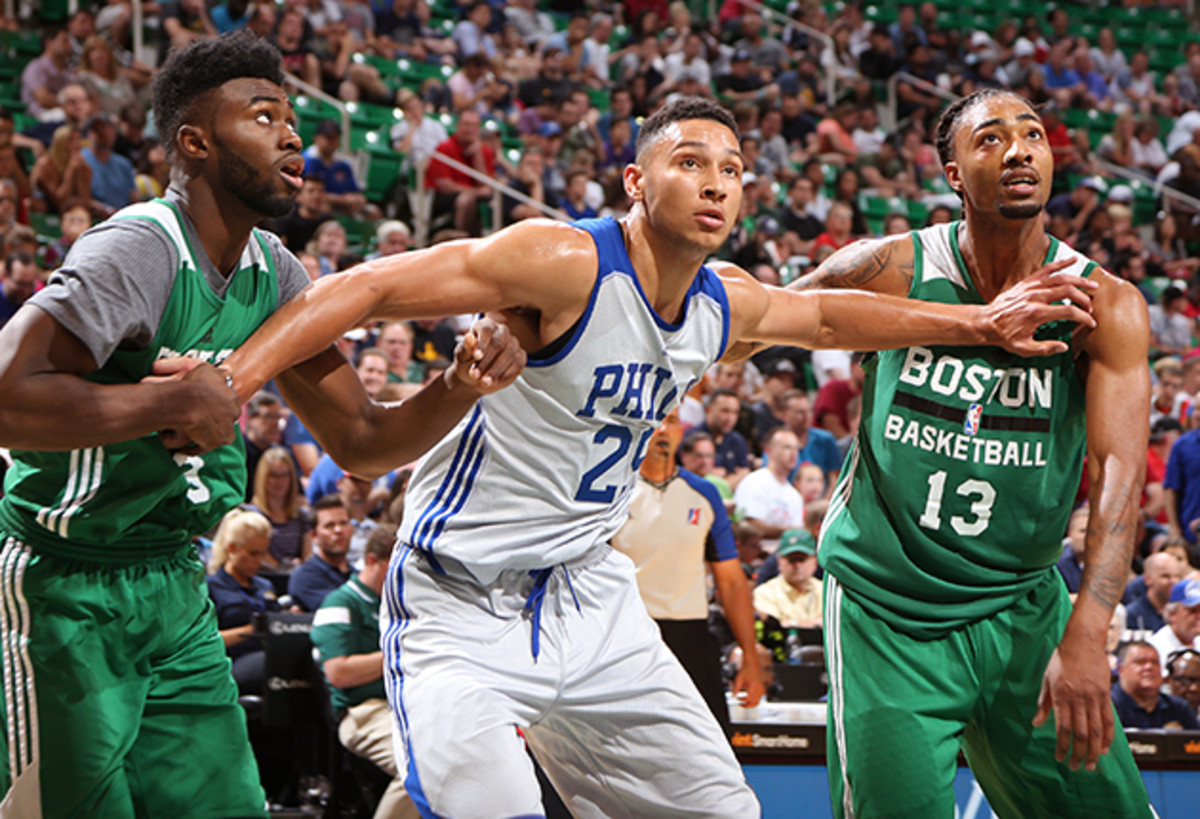
Which lottery picks from the 2016 draft will be there?
1. Ben Simmons, Sixers: The Australian point forward showed flashes of his elite passing and vision during this week’s Utah Summer League. All that “Process” is about to finally pay off on the court.
2. Brandon Ingram, Lakers: After a one-year stopover at Duke, the 6’9” small forward is in place as L.A.’s face of the future.
3. Jaylen Brown, Celtics: Boston’s decision to select the Cal product after a so-so freshman year drew criticism on draft night, but Brown displayed high-level physical tools in Utah this week.
4. Dragan Bender, Suns: The 18-year-old Croatian big man is headed stateside after playing limited minutes in Israel last season. Whether or not he hits the ground running against the competition in Las Vegas will give a sneak peek at what’s to come in his rookie year.
5. Kris Dunn, Timberwolves: After four years at Providence, the 22-year-old Dunn is developed enough that he should make an immediate impact in Las Vegas. If he plays well, the Ricky Rubio trade rumor mill could get going sooner rather than later.
6. Buddy Hield, Pelicans: Anthony Davis needs help, New Orleans needs scoring after the off-season departures of Eric Gordon and Ryan Anderson, and the Pelicans fan base needs someone to rally around. Hield will look to prove he’s the answer to all of those needs, and he should thrive in the fun-and-gun Vegas format.
7. Jamal Murray, Nuggets: The Canadian guard slipped to Denver, where he potentially will team with 2015 lottery pick Emmanuel Mudiay as an intriguing backcourt of the future. In Vegas, he’ll play alongside both Mudiay and incumbent starting shooting guard Gary Harris.
8. Marquese Chriss, Suns: One of the biggest “boom or bust” names in this year’s class, the foul-prone 19-year-old forward will be glad to know that players can draw 10 fouls before getting the boot in Las Vegas.
9. Jakob Poeltl, Raptors: With BIsmack BIyombo heading to Orlando, Toronto will eye its Austrian 7-footer as a back-up center of the future.
10. Thon Maker, Bucks: Milwaukee could be in line for some serious second-guessing this week if the 2016 draft’s biggest reach struggles.
12. Taurean Prince, Hawks: Atlanta acquired the 6’8” Baylor forward from Utah in a three-way trade that sent George Hill to the Jazz. Prince is on the Hawks’ roster for Las Vegas, where he’ll try to fit into a “3 and D” role.
13. Georgios Papagiannis, Kings: Sacramento didn’t need a center, no one had Papagiannis pegged for the lottery and Vlade Divac hasn’t exactly lit the world on fire with his moves since taking over the Kings front office. Nevertheless the 7’2” Greek teenager is on Sacramento’s roster, making him of the most intriguing names to watch over the next two weeks.
14. Denzel Valentine, Bulls: Chicago’s off-season backcourt additions of Rajon Rondo and Dwyane Wade obviously move Valentine down the pecking order, but the versatile and accomplished Michigan State guard will get plenty of looks in Las Vegas.
• 10 weird aspects of Wade's free agency | What's next for Westbrook?
Which 2016 lottery picks won't be there?
11. Domantas Sabonis, Thunder: Acquired by Oklahoma City from Orlando in the Serge Ibaka trade, the son of former NBA player Arvydas Sabonis won’t be in Las Vegas because the Thunder opted to play in the Orlando Summer League instead.
Which 2015 lottery picks will be there?
2. D'Angelo Russell, Lakers: L.A.’s point guard of the future made headlines for the wrong reasons during his rookie year, but he’ll look to make progress from a shaky 2015 Vegas showing in his second time around.
6. Willie Cauley-Stein, Kings: Sacramento’s frontcourt situation is muddled, but the athletic and long Cauley-Stein should produce plenty of highlight reel blocks and effort plays in Las Vegas. Will that be enough to earn him a bigger role under new coach Dave Joerger?
7. Emmanuel Mudiay, Nuggets: Mudiay had some strong moments in Las Vegas last year before his rookie season went sideways due to injury. His physical presence, coupled with a year of professional experience under his belt, should make him stand out from the crowd this year.
10. Justise Winslow, Heat: With Dwyane Wade headed to Chicago and Luol Deng headed to L.A., Winslow is in line for a major role increase this season. A strong defender as a rookie, the Duke product must hone and expand his offensive repertoire.
12. Trey Lyles, Jazz: Utah’s veteran summer additions might cost Lyles some minutes during the regular season, but in Las Vegas he’ll get the chance to show his range and versatility.
13. Devin Booker, Suns: The only bright spot in a rough season for Phoenix last year, Booker should light up Las Vegas with his scoring ability and natural shooting stroke.
• Booker forms unlikely bond | Timeline: Russell's dramatic rookie season
What is the event's format?
This year will feature a tournament-style round that will end in a championship game for the fourth straight time. Each team approaches the tournament a bit differently, as some compete hard in pursuit of the title while others rest guys as the week drags on. The Warriors, Kings and Spurs (led by coach Becky Hammon) won the Summer League championship the last three years, respectively. The tournament portion of the event begins on July 13 after each team opens with three games against predetermined opponents. Schedules for each team are available right here.
How can I watch?
ESPN and NBA TV will provide comprehensive television and streaming coverage this year. ESPN will broadcast all 67 Las Vegas Summer League games on ESPN, ESPN 2 and its ESPN 3 live streaming service, while NBA TV will also televise 30 games.
